#michael goldenberg
Text




Harry Potter and the Order of the Phoenix (2007
"Working hard is important, but there's something that matters even more: believing in yourself. Think of it this way: every great wizard in history has started out as nothing more than we are now. Students. If they can do it, why not us?"
#harry potter and the order of the phoenix#michael goldenberg#david yates#daniel radcliffe#emma watson#rupert grint#brendan gleeson
8 notes
·
View notes
Text
10.11.23
#Mira-Marathon | Harry Potter
Film
Name: Harry Potter and the Order of the Phoenix (2007);
Production Studios: Warner Bros., Heyday Films;
Director by: David Yates;
Screenwriter: Michael Goldenberg;
Starring: Daniel Radcliffe, Rupert Grint, Emma Watson, Gary Oldman, Michael Gambon;
Genres: Fantasy, Action, Adventure, Family;
Running Time: 2 hours 18 minutes;
"Harry Potter and the Order of the Phoenix" is the fifth film in the series, where Harry fights against the return of Voldemort. The film explores dark forces and is darker compared to the previous installments. The plot is exciting and the visual effects are stunning. Recommended for fans of magical stories.
My rating: 8/10
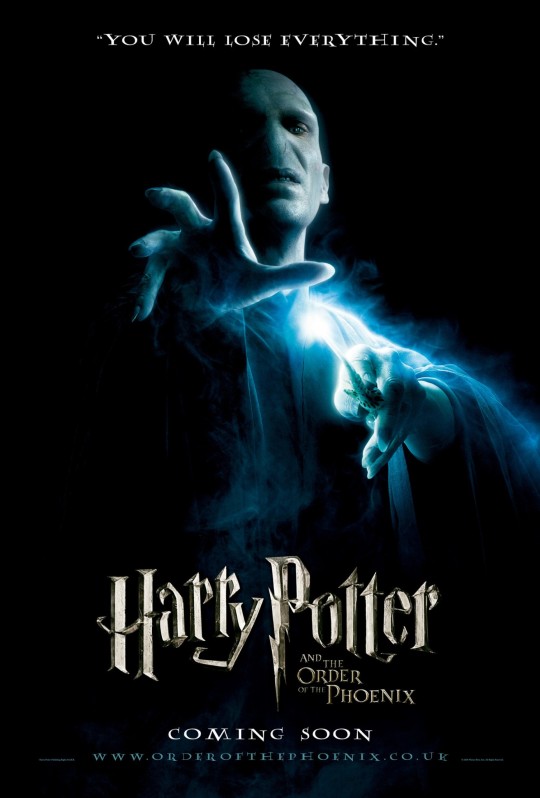
#mira marathon#harry potter#film#harry potter and the order of the phoenix#fantasy#adventure#family#2007#warner bros#heyday films#david yates#michael goldenberg#daniel radcliffe#rupert grint#emma watson#gary oldman#michael gambon#action#2 hours#8/10
2 notes
·
View notes
Text
Harry Potter and the Order of the Phoenix (2007)

At too many points, Harry Potter and the Order of the Phoenix forgets that, as a movie, it NEEDS to deviate from the source material. This makes it - more than any of the prior films - a sequel that will appeal to fans of the books first and foremost. That’s not to say it doesn’t work. This is a darker, more mature film for an audience that is growing up. Like its predecessors, this fifth chapter satisfyingly expands its world and characters.
Although Harry Potter (Daniel Radcliffe) personally witnessed the return of the villainous Lord Voldemort (Ralph Fiennes), no one at the Ministry of Magic believes him. Instead, they send Dolores Umbridge (Imelda Staunton) to Hogwarts School of Witchcraft and Wizardry to restore order among the students and teachers. As she and the Ministry annex more and more authority from Professor Dumbledore (Michael Gambon) and restrict the use of magic inside the school, Harry, Ron Weasley (Rupert Grint), Hermione Granger (Emma Watson) and their friends begin clandestinely training to face the dark forces outside.
What makes this film more grown-up than the others is the villain. Voldemort isn’t in the film much. The true antagonist is Dolores Umbridge, wonderfully played by Imelda Staunton. Finding words to describe your hatred for her is a challenge. She’s the lady at the DMV who holds all the power over you and feels the need to prove it. Maybe you accidentally spoke out of turn but odds are, she just didn’t like the way you looked walking in. The scenes where her influence at the school steadily grows are the movie’s best, a darkly comedic montage of the school’s cruel and demented caretaker, Filch (David Bradley) hammering one stifling decree after another into Hogwarts' stone walls. Voldemort’s a great bad guy but his villainy ain’t subtle. Umbridge and the ministry that backs her are truly sinister, the kind of evil you see in real life.
The scenes with Umbridge don’t so much retell what we saw in the novel by J. K. Rowling as embody the emotions her words generate. The scene in which Imelda Staunton and Maggie Smith (playing Professor McGonagall once again) assert their strength by going up a staircase one step at a time to show who is truly on top has the power of a thousand words. The film also wisely gives increased screen time to Evanna Lynch as Luna Lovegood, a favorite among many readers. During the conclusion, however, it sticks much closer to the original material, to its detriment. Everything that happens is exciting. There are ticking clocks and chases, opponents on every side, betrayal, action and heartbreaks but it feel rushed. If as little as one location was cut, it’d be cleaner and would land The Order of the Phoenix on the same height the previous movie - maybe even The Prisoner of Azkaban. A lot about the conclusion works but it could've been even better.
By now, all the returning actors are more than comfortable in their roles. The newcomers (which includes Helena Bonham Carter) are perfectly cast and even those with only a sliver of screen time make the most of their dialogue. Of all the books in the series, this was probably the most difficult to translate to the silver screen. The results - though imperfect - speak to the talent of director David Yates. You'd never guess he had only directed one film before this one. Though Harry Potter and the Order of the Phoenix is a slight step down from the two previous movies, by the end you'll be too eager to see what comes next to mind. (On Blu-ray, July 12, 2019)

#Harry Potter and the Order of the Phoenix#movies#films#movie reviews#film reviews#harry potter#david yates#michael goldenberg#daniel radcliffe#rupert grint#emma watson#helena bonham carter#robbie coltrane#warwick davis#ralph fiennes#michael gambon#brendan gleeson#richard griffiths#jason isaacs#gary oldman#alan rickman#fiona shaw#maggie smith#2007 movies#2007 films
3 notes
·
View notes
Text
As a Romione shipper (and huge Ron stan) I do get mad at the way films treated my ship and favorite character but then I think about Hinny shippers and Ginny fans and I feel like I shouldn’t even complain…
#fuck Steve kloves#Michael Goldenberg was much better#his Ginny actually felt powerful not awkward#harry potter#ron weasley#hermione granger#ginny weasley#romione#draco malfoy#albus dumbledore#severus snape
221 notes
·
View notes
Text

Now showing on my Halloween 🎃 movie 🎥 marathon...Halloween Ends (2022) on amazing blu-ray! #movie #movies #horror #halloween #HalloweenEnds #johncarpenter #michaelmyers #theshape #jamieleecurtis #lauriestrode #andimatichak #jamesjudecourtney #RohanCampbell #nickcastle #KyleRichards #WillPatton #micheledawson #marteen #MichaelOLeary #jaxongoldenberg #DIVATYLER #2020s #bluray
#movie#movies#horror#halloween#halloween ends#john carpenter#Michael Myers#the shape#laurie strode#jamie lee curtis#andi matichak#Kyle Richards#james jude courtney#nick castle#will patton#diva tyler#michele dawson#marteen#jaxon goldenberg#blu-ray#2020s#Spotify
0 notes
Photo

Ringo Starr
Time Takes Time
1992 Private Music
—————————————————
Tracks:
01. Weight of the World
02. Don’t Know a Thing about Love
03. Don’t Go Where the Road Don’t Go
04. Golden Blunders
05. All in the Name of Love
06. After All These Years
07. I Don’t Believe You
08. Runaways
09. In a Heartbeat
10. What Goes Around
—————————————————
Jeff Baxter
Bob Glaub
Andrew Gold
Mark Goldenberg
David Grissom
Mark Hart
Michael Landau
Jeff Lynne
Roger Manning
Richard Starkey “Ringo Starr”
Neil Stubenhaus
Andy Sturmer
Benmont Tench
Michael Thompson
Waddy Wachtel
* Long Live Rock Archive
#RingoStarr#Ringo Starr#Jeff Baxter#Bob Glaub#Andrew Gold#Mark Goldenberg#David Grissom#Mark Hart#Michael Landau#Jeff Lynne#Roger Manning#Neil Stubenhaus#Benmont Tench#Michael Thompson#Waddy Wachtel#Time Takes Time#LP#Pop#1992
0 notes
Photo
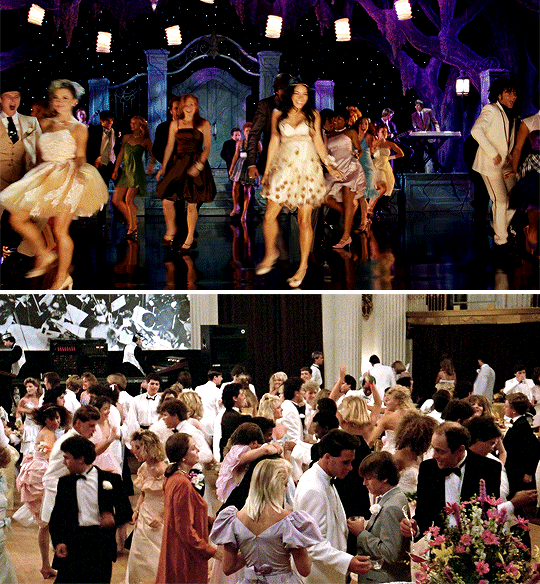
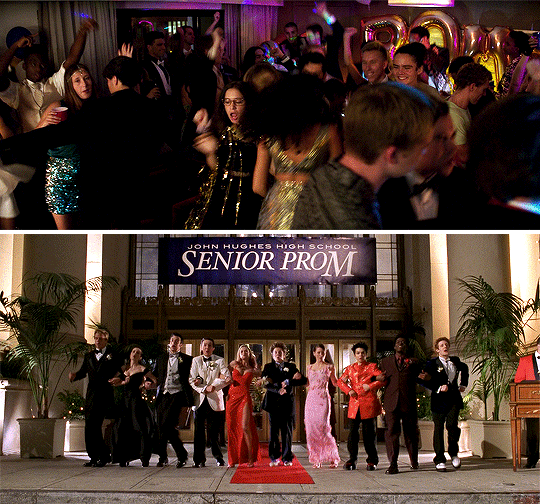

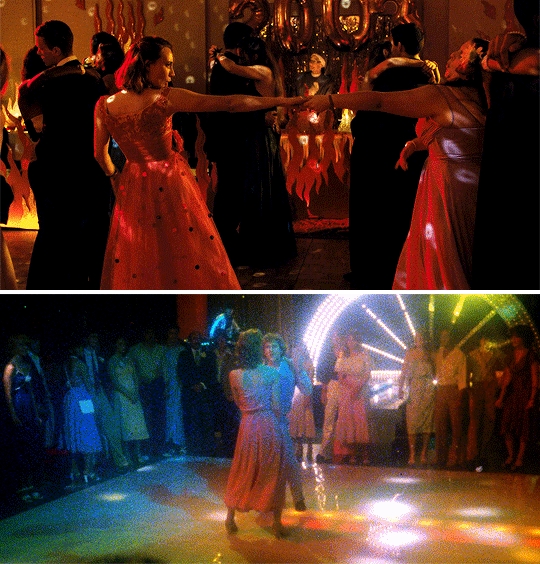
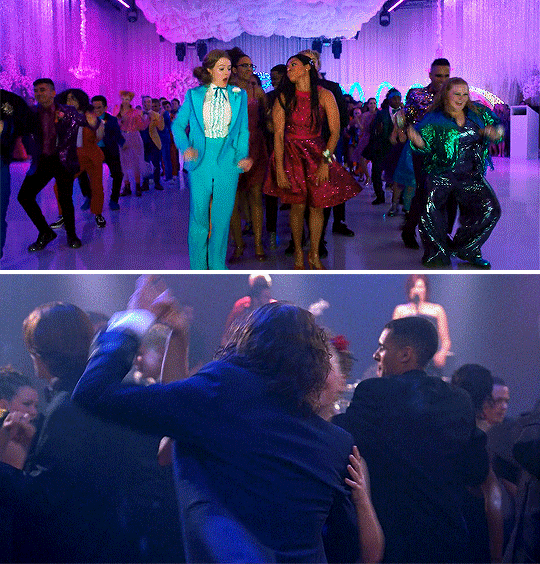
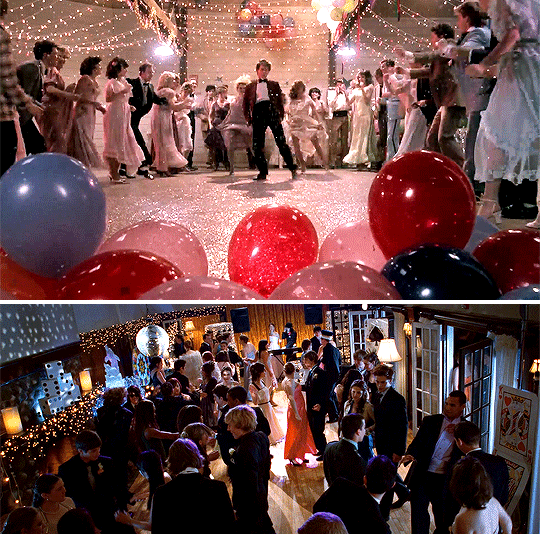


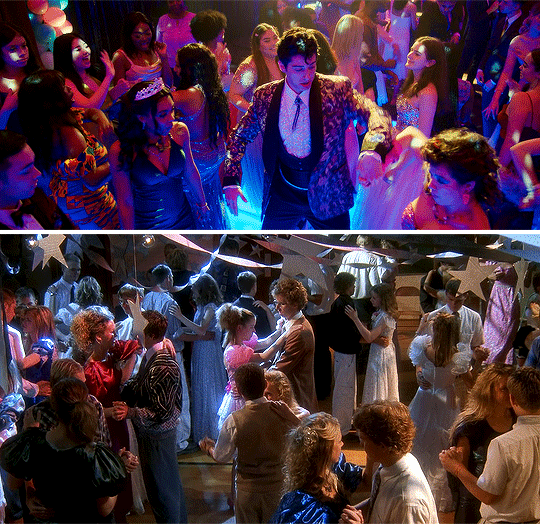
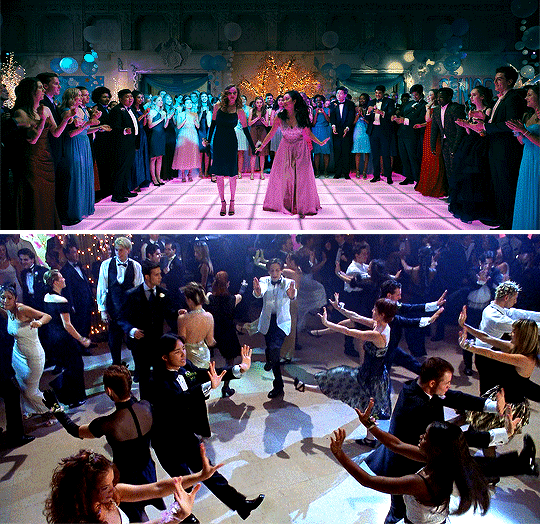
Dancing in Film: Prom dances
High School Musical 3: Senior Year (2008) dir. Kenny Ortega
Pretty in Pink (1986) dir. Howard Deutch
Blockers (2018) dir. Kay Cannon
Not Another Teen Movie (2001) dir. Joel Gallen
Jawbreaker (1999) dir. Darren Stein
Back to the Future (1985) dir. Robert Zemeckis
Lady Bird (2017) dir. Greta Gerwig
Prom Night (1980) dir. Paul Lynch
The Prom (2020) dir. Ryan Murphy
10 Things I Hate About You (1999) dir. Gil Junger
Footloose (1984) dir. Herbert Ross
Twilight (2008) dir. Catherine Hardwicke
Valley Girl (2020) dir. Rachel Lee Goldenberg
Never Been Kissed (1999) dir. Raja Gosnell
The Spectacular Now (2013) dir. James Ponsoldt
Carrie (1976) dir. Brian De Palma
The Prom Pact (2023) dir. Anya Adams
Napoleon Dynamite (2004) dir. Jared Hess
To All The Boys I’ve Loved Before: Always and Forever (2021) dir. Michael Fimognari
She’s All That (1999) dir. Robert Iscove
#filmedit#disneyedit#musicaledit#80sedit#90sedit#00sedit#teendramaedit#usergina#userk8#my edit#filmchoreo#because it always needs to be said:#not an exhaustive edit just an exhausted editor#but also i deliberately did not include anything that did not use the word prom in its script#(blockers is the afterparty and hsm3 is before the night of but eh)
1K notes
·
View notes
Text
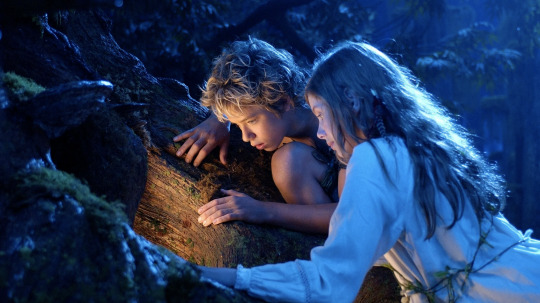
P.J.Hogan's 'Peter Pan' is still an underrated masterpiece 20 years later
Peter Pan is a live-action fantasy adventure film directed by P. J. Hogan that reimagines the classic story of Peter and Wendy. The screenplay was written by P. J. Hogan and Michael Goldenberg and was released in cinemas in December 2003. The screenplay is based on the 1904 play Peter Pan, or The Boy Who Wouldn’t Grow Upand the classic novel Peter Pan by J.M.Barrie, which was originally published under the title Peter and Wendy.
The film tells the story of a young Edwardian girl, Wendy Darling (Rachel Hurd-Wood) and her two younger brothers John and Michael. On the night she is told she must grow up, a wild, fairy-like boy called Peter Pan (Jeremy Sumpter) flies into her room with his high-maintenance fairy Tinkerbell. When he learns that she tells stories, he whisks Wendy and her two brothers away to a magical Island called Neverland — where you supposedly don’t “grow up” — so that she can mother his henchmen, the Lost Boys. There she fights pirates led by the evil Captain Hook (Jason Isaacs), meets mermaids, dances with fairies, falls in love and grows up.

I have strong family connections tied to Peter and Wendy and J.M.Barrie. My great, great uncle Nico was one of the sons of Sylvia Llewelyn Davies'. He and his other brothers "the Lost Boys" were adopted by J.M.Barrie; which ultimately inspired him to write Peter Pan. Nico’s daughter Laura — my cousin — who I met for the first time a few years ago, told me that she was flown to Australia for the filming of P.J. Hogan’s Peter Pan because she was J.M.Barrie’s goddaughter. She told me that she was thrilled with the cast, especially Jason Isaacs, who played Captain Hook and Mr Darling. She also mentioned that Jeremy Sumpter, who played Peter Pan, was a lovely boy. However, she said she was very surprised and sad that the film wasn’t a big success as she really liked what they did with the story. I have loved the fairytale of Peter Pan from a young age, and learning that I am literally part of the family that inspired the story was very exciting and I’ve only begun to internalise it more as I’ve grown older.
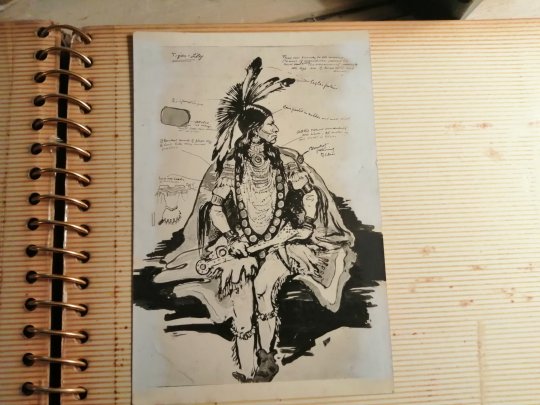
When I was in my mid-twenties, I was diagnosed with a high level of Autism. One of my main symptoms was labelled “ageless”, which in simple terms means that one half of me is still a child that I can’t mentally leave behind. I can’t do many things that most adults can do, such as pay bills, drive a car, look after my own well being etc. I flap my hands when I get excited. I bounce. I sometimes speak in a baby voice. I overcommit to things I enjoy. I admit that it was hard to come to terms with the diagnosis when I first received it. But over time, I’ve come to believe that the two can coexist in a healthy way. I believe that I am an adult who is able to develop and grow while still carrying the child within me, and that this is not seen as a bad thing. I think Peter and Wendy can be seen as a reflection of that.

I was first introduced to P.J. Hogan’s Peter Pan a few years after it was released (I was maybe nine or ten years old), and I absolutely loved it. It wasn’t only one of my favourite film adaptations, but one of my favourite movies of all time. What surprised me most about the film at that age was how dark and gruesome it was, and full of this underlying sexual tension that I hadn’t expected at all from Peter Pan. Even today, this film still has a special place in my heart. It is made with so much passion and love for the original text that I can automatically put myself back into the story. After watching the film again as an adult, I almost immediately opened my copy of Peter and Wendy and started reading. I would even go so far as to say that I prefer the film to the book. However, part of me wishes that the age rating had been set much higher, as the dark and gruesome moments were some of the strongest parts of the film adaptation. This is possibly why some critics and viewers had difficulty categorising the film at the time.
However, I often consider P.J.Hogan’s Peter Pan to be the same equivalent as Joe Wright’s Pride and Prejudice. (which came out a few years later in 2005, starring Keira Knightley and Matthew Macfadyen). The film moves at the same dreamlike pace. It is light, dark, colourful and deeply romantic.

I also often prefer P.J.Hogan’s Peter Pan to the 1953 Disney Animation of the same name, even though it’s the version I grew up with and liked. I find it much less straightforward and innocent. Also, the 2003 film is much closer to the original source material, which I loved reading as a teenager, and to J.M.Barrie’s original vision. The film manages to reflect the same intellectual subtext and depth of the novel while retaining the whimsy and magic.
Magical Realism

Peter Pan was a perfect blend of fantasy and realism. A lot of media these days focus too much on “realism” and make their sets and CGI look bland and washed out. It’s a common myth these days that no one likes whimsy anymore; it’s somehow seen as too childish. As a result, much of the magic of fantasy is lost. But in this Peter Pan, a lot of colour was used in the set design and cinematography. Everything was so brightly and colourfully lit. Most fantasy films these days, including the new live-action adaptation of Peter Pan and Wendy on Disney+, are all so gloomy and dark. You almost have to light up the screen to make out the actors’ facial expressions or what’s happening in the scene. But this film understands that a viewer who watches fantasy wants to be swept away, but also wants a certain amount of believability. Although the film contained a good amount of darkness, it did not shy away from being cartoonish either (which I think was partly inspired by the Disney animation), i.e. characters blushing or bouncing on the clouds.
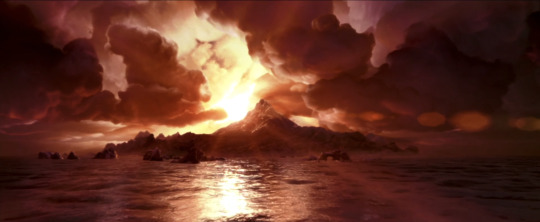
The design of Neverland was breathtaking. I think the CGI, although criticised by some, made the island and creatures look more dreamy and fairytale-like. It was a good combination of CGI for the landscapes and real backdrops for the jungle, so there was enough magic and believability to transport the viewer into the story. A bright colour palette was used for the landscapes, while down-to-earth colours such as browns and greens were used on the ground, such as in “The Lost Boys Hide” under the tree, to give a sense of realism. The costume department also reflected this, from the majestic reds and blacks of the pirates, to the earthly colours of blue and red for the Native Americans, to the natural greens and browns of the Lost boys. I noticed that the colours in Neverland were used as a contrast to the Edwardian London back home, which is realistic but dull compared to the island.
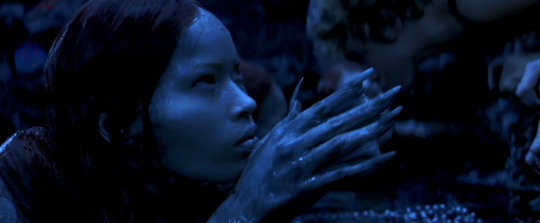
One aspect I liked was that the lighting on Neverland always changed depending on the mood of the scene- unlike the naturalistic lighting on Earth. It was almost as if the island was a living being. For example, when there was a fight on the ship, the lighting was red. When Peter took Wendy to the mermaids, who were scary and frightening, the lighting was dark and blue. This created a surrealistic atmosphere, almost like a fever dream or a kind of nightmare.
Sometimes the environment changed depending on Peter Pan’s mood in the respective scene. I particularly liked how Peter Pan influenced the weather on Neverland. Just his mere presence when he flew to the island changed the entire atmosphere in an instant. His feelings also determined whether it was summer or winter. In other words, its suggested in the film that the longer he has been there, the more the island has become a part of him, so that he can no longer leave it. It’s almost as if the island has transformed him into a magical being.
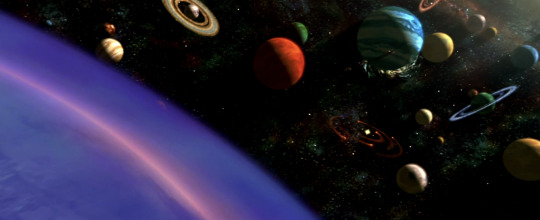
The exuberant musical score by James Newton Howard: I’ll never forget that. I think that was one of the first movies I saw where I actively noticed the music because it was so brilliant. Even today, the “Flying” soundtrack still gives me goosebumps. It perfectly encapsulates the whimsy, joy and imagination of Peter and Wendy. I loved that there were always different variations. One of my favourite pieces from the movie is ‘Fairy Dance’, which starts off cheerfully and moves up and down depending on the characters’ conflict/what they’re saying in the scene.
Cast
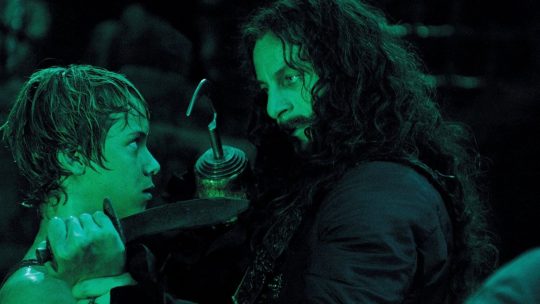
The cast of this film adaptation was magnificent. The look of all the actors not only matched the book description, but also the mood, especially with the Darling family. One of the standouts was Olivia Williams as Mrs Darling. She captured the gentleness of the character perfectly. I also loved the new addition of Aunt Millicent, played by Lynn Redgrave. She fitted into the story so well that I was surprised not to find her in the novel. She had the perfect amount of ridiculousness and hilarity that suited J.M.Barrie’s style.
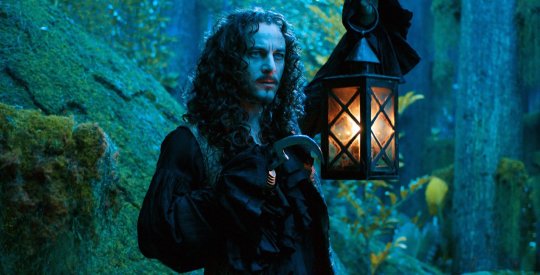
One particular member of the cast we can probably all agree on that was perfect, was Jason Isaacs, who played both Wendy’s father Mr Darling and Captain Hook. He was certainly a star in this film for sure. I just can not think of anyone who could play him better, especially in a live-action film adaptation. He was particularly good in the role of Captain Hook. When I first saw the film as a child, I did not know that Captain Hook and Mr Darling were played by the same person until my dad pointed it out to me because he was so good. I loved how they portrayed Wendy’s dad as shy and reserved, as opposed to Captain Hook who was flamboyant and sinister. Mirror versions of each other in different realities — that’s a common theme throughout the film. As Captain Hook, Jason Isaacs perfectly captured the essence of viciousness, deviousness and brutality that was necessary for the character. But also the deep loneliness and frustration behind it all. I have seen a quote that was supposedly cut from the film (and never should have been) that provides so much context for his hatred of Peter Pan:
“Imagine a lion in a cage and into that cage flies a butterfly. If the lion was free, it would pay no heed to such creature. But the lion is not free…and so the butterfly drives him slowly insane.” — Captain Hook
They did a really good job of showing how Peter Pan and Captain Hook are mirror images of each other. Peter Pan is a child who secretly wants to be an adult, while Captain Hook is an adult who secretly wants to be a child. Both fight each other for different reasons, but the goal is the same. For example, there is a great scene towards the end where Captain Hook uses his wits to defeat Peter in a fight. Here it becomes clear that there is deep symbolism for the inevitability of adulthood and the loss of childhood. Jason Isaacs really showed off his acting talent here. I liked that he wasn’t portrayed as a “dumb villain”, which he easily could have been.
There were also some great performances among the adults. Most notable was Richard Briers as the ‘pirate’’ Smee. But the child actors, especially the lost boys, really held the movie together. Their solid performances made it so believable that the island was ruled by children. I loved Theodore Chester as Slightly. He was very charming and funny in that role.
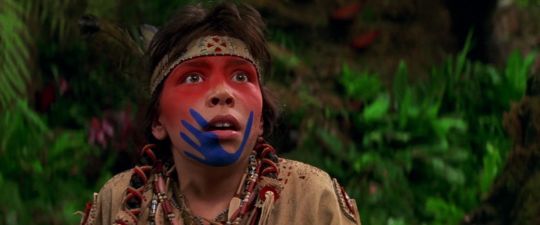
Another member of the cast I thought was brilliant was Carsen Grey, an indigenous actress of Haida descent, who played Princess Tiger Lily. I liked that they let her speak her ancestral language, Mohican, in this film. Although this film came out in the early 2000s, it is the only version of Peter and Wendy in which Native Americans are neither erased nor white-washed even though the representation is far from great. Considering how they’re treated in the novel, it’s perhaps for the best overall that they limited some of their scenes. However, I liked how firey she was in this adaptation and not the damsel in distress she was portrayed as in the Disney animation. I think it was a wise decision to cut the infatuation she had with Peter Pan, as it was really just one line in the book that would have added unnecessary drama, and all in all, it would have fallen short if all the female characters were jealous of each other.
They also downplayed Tinkerbell’s jealousy in this regard, portraying it more as her trying to protect Peter Pan’s youth from romantic advances, as hinted at in the novel, and also being sad that Wendy is attracting all of Peter Pan’s attention. Ludivine Sagnier has, in my opinion, succeeded well in making Tinkerbell equally repulsive and endearing, as befits the character.
Wendy Darling
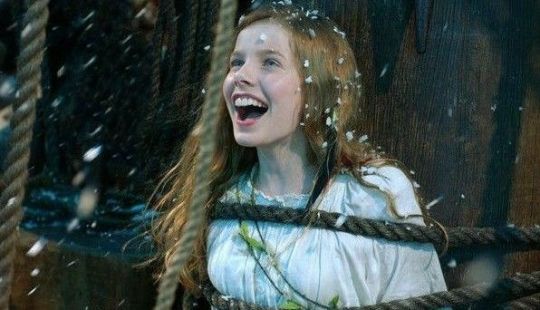
Rachel Hurd-Wood was the perfect cast for the role of Wendy Darling.I was actually surprised to learn that this was her first film role ever, because she was a natural. She effortlessly possessed the same caring nature and charm that makes Wendy so endearing. She is exactly how I imagine the character when I read the story. When people talk about Peter and Wendy, they always mention Tinkerbell, Pan or Hook, but personally I am always drawn to Wendy. She is the real heroine of the story. After all, she was the main reason for Peter to bring her and her brothers to Neverland.
What always amazes me about Wendy’s role in the story is the fact that Wendy literally doesn’t spend much time being a “child” in the time she spends in Neverland. When she’s not escaping death at the hands of mermaids or pirates, she acts as a mother to the ‘lost boys’ and her brothers. She asks herself what she really wants from life. In comparison, she was allowed to behave more like a child at home in Edwardian London. Neverland is not a place where you never grow up. It’s the place where she chooses to grow up. Many people have described Neverland as a manifestation of Wendy’s subconscious as a result of trauma, and I’ve never found that to be more true in this adaptation.
One of the reasons why I think P.J. Hogan’s Peter Pan is the best adaptation of the novel is the fact that the film revolves around Wendy’s coming of age. I loved that they expanded on her love of storytelling and also gave her a tomboyish streak. Instead of just being on the sidelines, she’s able to get involved and fight pirates while retaining many of her feminine traits such as her maternal instincts and romantic feelings for Peter. She makes mistakes and sometimes gets dragged into things she knows she shouldn’t do. But in the end, she triumphs.
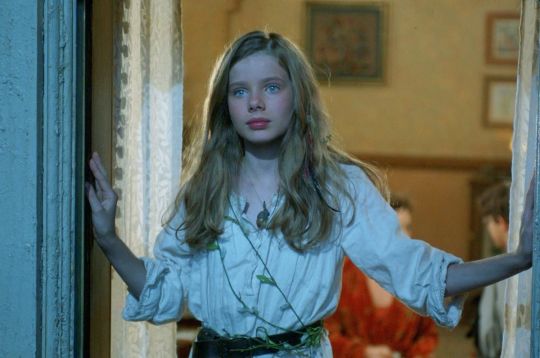
In many film adaptations of Peter and Wendy that I have seen, Wendy is either only present in passing or not at all. Characters like Peter Pan, Captain Hook and Tinkerbell always take centre stage, which I think is a strange decision as they are part of Wendy’s story and not the other way around. Peter Pan is meant to metaphorically represent the childhood she does not want to give up (which is why the character is always played by a woman in the original play, as he is a mirror image of Wendy). And Captain Hook (J.M.Barrie also wanted him to be played by the same actor as Mr Darling) represents the dark side of her father, or rather what she imagines adulthood to be. This is particularly emphasised in this film adaptation because he is an important factor in her being told to grow up. The father, the concept of adulthood, and Peter Pan, her childhood, are at constant war with each other.
“You’re not supposed to be like Peter, who kept every good and bad aspect of being a child and can’t tell right from wrong. You’re not supposed to be Hook, either. He let go of everything childish and loving about him and became bitter and evil..You’re supposed to fall in the middle, to hold onto the things about childhood that make it beautiful — the wonder, the imagination, the innocence — while still growing up and learning morality and responsibility. You’re not supposed to be Hook. You’re not supposed to be Peter Pan. You’re supposed to be Wendy Darling.” — @maybe-this-time
The 2023 film Peter Pan and Wendy took a different approach, by making Wendy a kind of powerhouse who always saved the day and outshone Peter Pan overall. In my opinion, the 2003 film adaptation emphasised very well that Wendy really is the yin and yang. She's allowed to be romantic, be rescued by others and at the same time determine her own destiny and stand up for herself. Because that’s what her journey in the adaptation is all about. She is pressured by all the adults in her life to grow up. She allows herself to be seduced with the prospect of an eternal childhood by Peter Pan. Then she realises that it is not self-fulfilling. She is tempted by Captain Hook with the concept of adulthood. And finally, she finds a balance between these two extremes on her own terms. By the end of the film, Wendy has made her peace with growing up while still remaining a child at heart. That requires a certain mental strength that we should all strive for.
Peter Pan and Wendy Darling
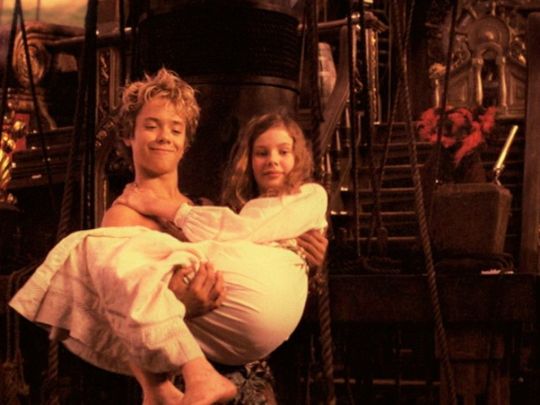
In most adaptations of Peter and Wendy, such as Hook and Syfy’s Neverland, the focus is on the title character Peter. In the more recent film adaptation Peter Pan and Wendy, the focus is on Wendy. This film adaptation of Peter and Wendy, on the other hand, sticks more closely to the original source material, as the story focuses on Peter and Wendy’s relationship. This is perhaps the reason why I always hesitate when I watch other adaptations, because these two characters are supposed to go together. It’s definitely a relationship that can be portrayed in all sorts of ways because they are symbolically the same person.
Although there is no romance between Peter and Wendy in either the original novel or the play, Wendy quickly develops romantic feelings for Peter which, as a prepubescent child, he does not consciously reciprocate as he has no concept of love other than that of a mother’s. Although Peter cares deeply for her, he ultimately only longs for her to be the maternal figure that is missing in his life. One could go into the symbolism that Peter and Wendy are one and the same, and that this is an expression of Wendy learning to love herself. But in a literal sense, J.M.Barrie had unintentionally created this very strong potential between the two characters. And I personally feel if your'e going to make an adaptation of Peter and Wendy that potential needs to be explored in some way, even if it’s not necessarily romantic.
Hogan recognised this potential and developed the romantic elements, e.g. ‘the “thimble” from the novel, into a very real and tangible plot. In other adaptations, Peter and Wendy’s relationship is rather one-sided. But in P.J. Hogan’s film adaptation, however, it is not at all. Over the course of the film, Peter and Wendy fall deeply in love with each other.
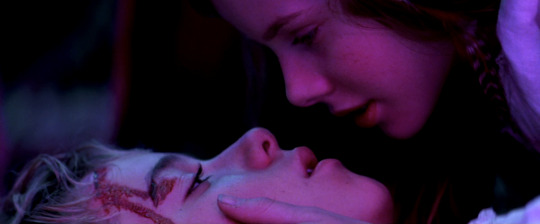
Rachel Hurd-Wood and Jeremy Sumpter had a remarkable on-screen chemistry for young actors, which helped give the adaptation its own identity. Whenever they interacted on screen as Peter and Wendy, it was — like the glittering pixie dust of Tinkerbell — simply magical. The off-screen chemistry between the two definitely helped make the romance so believable as well. When I was younger, I didn’t like romantic subplots in family films. I personally found that they clogged up the main plot because the “romance” tended to be very one-dimensional- but Peter and Wendy in the 2003 film version were simply enchanting.
In the original novel, J.M.Barrie alludes to the possibility of a romance between the two. In the film adaptation, they go all out. Their love story was written so beautifully and profoundly, while staying true to the original text and J.M.Barrie’s themes. This made the conflict hinted at in the novel of “staying in Neverland with Peter or growing up on Earth with Wendy” even more poignant and relevant, because in reality there was only ever one option. They couldn’t find a way to have both. That made the ending even more “heartbreaking” for me as a child, because even though they had the chance to be happy together, she couldn’t give up on growing up to stay. And he couldn’t give up being a child to leave, even though it was a natural progression for him.
Peter Pan
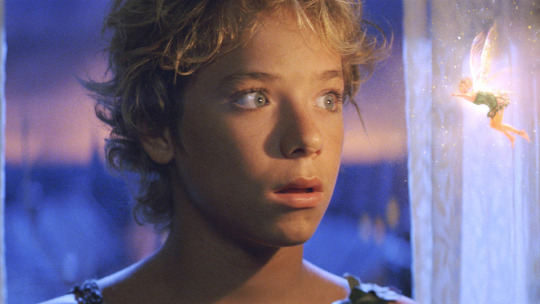
Jeremy Sumpter delivered a fantastic performance as Peter Pan. Not only did he perfectly match the illustrations, but he also managed to perfectly capture the essence of the charismatic, mischievous little boy from the novel. What’s more, of all the versions I have seen so far, he is by far the most accurate, right down to the clothes made of skeleton leaves, the dirty fingernails, the feral mannerisms, the traumatised soul behind the charm and the downright creepy insinuations. By today’s standards, you could almost take Peter Pan for a grown man who consciously decides not to behave like this.
However, when I watch the film again as an adult, I can now understand why he has reservations about growing up in Edwardian England and would rather remain a “child” in Neverland forever. As Peter says in the film, “Would they send me to school? And then to an office?” I feel like most of us today have so many choices as we get older, but back then it was much more limited. The choices were very restricted in that “heterosexist” environment. You could only be a certain thing, and it was much harder to hold on to the pleasures of life. I can now also understand the initial reactions of Michael and John to Peter: He must have seemed scandalous to people at the time. His bright colours, his inappropriate clothing and his behaviour are repulsive to the boys, but Wendy is immediately fascinated and attracted. I think it was a deliberate choice that he is the only character with an American accent to set him apart from the rest of the cast; to emphasise the wildness of the character and his non-conformity to the people of Edwardian London.
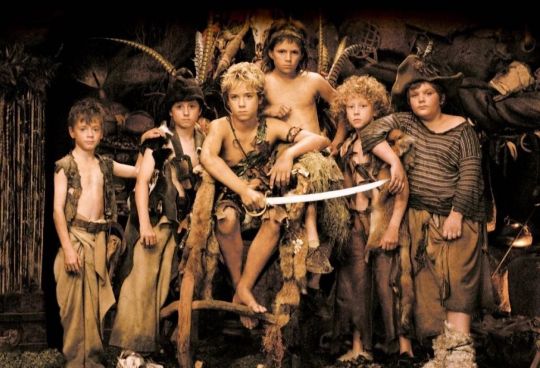
Another small aspect I liked was the suggestion that the Lost Boys, although they lived with Peter and obeyed his commands, lived in constant fear of him and did not worship him as in other adaptations. (A fear that is justified as Peter tries to kill them more than once in the film). What the 2003 film adaptation captured perfectly about Peter's character was: how terrible of a person he really is. Peter Pan is a hero when he goes on adventures and fights pirates. You could argue — via the quote “Leave Hook to me” (which Peter says to her in the film) — that Peter is Wendy’s split self who can fight her father (Captain Hook) for her, just like antibodies do with germs when we can’t handle them ourselves.
However, when it comes to understanding emotions, caring about others, even his henchmen, the Lost Boys, and doing anything that inconveniences him, Peter Pan is possibly as bad as Captain Hook. This makes Wendy’s decision to leave him all the more powerful. Although she was initially seduced by his adventurous life, she soon realises that his “life” of joy and adventure is not fulfilling at all. Because in reality, there is no real joy. There is no real adventure. In reality, his life is empty because it is not earned. In addition, she realises that she is gradually losing her memory of the outside world, including her parents - a sign that she is “slowly awakening from the dream”. This leads Wendy to realise that she wants more than what he can give her in Neverland (e.g. romantic love) and decides to leave. Being alive means feeling, accepting and growing. However, as long as Peter remains a boy, he can never truly be alive. Peter Pan conveyed this important message, whereas earlier film adaptations, including the Disney animation, did not.
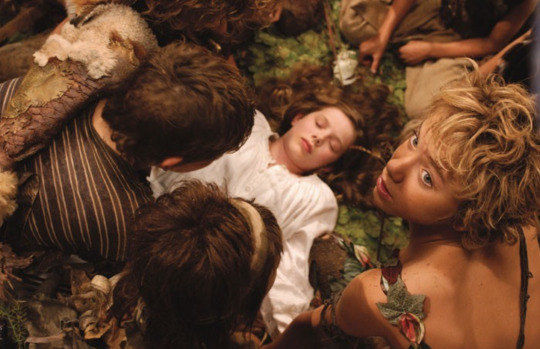
One of the reasons why good adaptations of Peter and Wendy are so hard to come by, especially in this day and age, is not only because they adapt a performative story that exists in layers of subtext. They also work with a protagonist who doesn’t change. Who doesn’t develop in any way, neither negatively nor positively. Not even just physically, but also mentally. (Even Eli from Let the Right One In, the child vampire, changes in the course of the story). At the end of day, Peter Pan is ultimately there to serve someone else’s story. It works in a fairy tale format. But it doesn’t usually translate very well to the screen because it often leads to one-dimensional storytelling. Even if it seems so natural, it doesn’t come naturally.
However, this adaptation allows Peter Pan to grow. The writers expanded on the small aspect from the book, which is the moment when Wendy enters Peter’s life; he begins to feel emotions. Not just love. But anger. Fear. Sadness. Pain. Disgust. And above all: self-awareness. Almost like a version of puberty in condensed time, as if the change suddenly caught up with his body. When Wendy brings this up, Peter immediately rejects it out of fear. I think most of us can all relate to this when we were in the midst of growing into a young adult. We experience feelings that are scary and new, that we can’t yet fully understand or even want to. For Peter Pan, falling in love is exactly what he is afraid of: growing up and no longer being a child. This adds to an interesting conflict that arises between the two when she asks him to leave with her.
“The thing about Peter Pan is, he’s a coward. Had the chance of a lifetime and he bottled it. Just fucked off back to Neverland. All alone, forever he was, by his own hand. Poor old Wendy, she had to grow old without him.” — Skins, 6x07 “Alo”
In the original novel, the reason Wendy can’t take Peter Pan with her (apart from the fact that he refuses to grow up) is the same reason Lyra in His Dark Materials can’t take Pan — the animal manifestation of her soul — on the boat to the land of the dead. She has to split in order to grow up and leave a part of herself behind. She can’t keep both in order to move on. But that does not mean I always agree with the ending either. In which Peter remains a child and takes Wendy’s future descendants to Neverland and back to look after him. It leaves an icky aftertaste, but at least it fits in with the story J.M. Barrie wanted to tell.

Even though the adaptation conveys the same message, that Peter Pan is the manifestation of Wendy’s youth, even to the end. In this version of Peter Pan, that is no longer the case. By the end of the film, the way he holds himself is different. The way he looks wistfully through the open window and solemnly says, “To live would be an awfully big adventure,” : a sign of self-awareness, while Wendy happily reunites with her family. So much so that Tinkerbell has to pull him by the hair to stop him from joining them and reconsidering his decision. Peter is now old enough to know that he loves Wendy. Maybe he’s also mature enough to know what he’s missing, but he knows he can’t have her the way he wants, so he does the most selfless thing he’s ever done in the whole film by letting her go.
There is no such conflict at the end of the 1953 Disney animated film. Peter Pan is described by Wendy as “wonderful”. In reality, everyone else gets their happy ending, except him, because he deliberately chooses not to. Peter Pan very much turns himself into a tragic figure because he is afraid of the most natural thing in the world. He is afraid of life. And I feel like this version of the story knew that and expressed it strongly, which makes me conflicted now as an adult. I’ve seen endings like this before, where two people fall in love but do not end up together because they grow apart or they are both interested in different things, and it’s very important to reach those points in different ways. It very much reflects real life and is also reminiscent of first love. How that love never really fades. It reminds you of simple times, even when you’ve grown up and moved on. That a part of you is still at that age when you look back on it. These endings happen because people grow — which Peter Pan does not.
“Peter in the books lives in oblivious tragedy. He may suspect that he’s not fully happy, but he tends to forget about it… yet this Peter doesn’t… Wendy leaving him and growing up to be a wife of another man is his unhappy thought…It’s the loss of innocence since Peter could not forget this…It’s the process of growing up…all but confirms that Peter’s character arc in the film is one of accepting the fact he too must grow up to be happy.” — @rex-shadao
And I think that’s the real reason why his character is both the strongest and the weakest part of the adaptation. The writers didn’t make it clear enough that Peter Pan forgets in their version of the character. In the novel, Peter Pan forgets everything automatically, which is why he can exist in this limbo of childhood and not go mad. However, as mentioned earlier, this version of Peter Pan is old enough to remember and, more importantly, to feel. Even though he is the closest to J.M. Barrie’s original vision, unlike his counterpart in the book, he is capable of evolving. That’s why the ending sometimes feels strange to me as an adult.
It was hard to say why I had a strange feeling at first, but I realised that a lot of my mixed feelings stemmed from having seen the film adaptation fresh after reading the novel. Since Peter Pan fully reciprocates Wendy’s love in this version, he ends up being a different character than in the book, which is why I now disagree with them keeping the original ending instead of having him grow up with Wendy. It would symbolise that childhood can co-exist with adulthood, that you don’t have to leave a part of yourself behind. That you can be your true and complete self if you find the balance between the two extremes.
The original ending still works however, in all its bittersweetness. I know what it means and understand what it stands for. Wendy basically says goodbye to her childhood and promises never to forget it. There’s a reason it made such an impression on me when I was younger. It could just be because I’m trying to pick up all the pieces of my broken heart from the floor. But personally, as an adult, I just find it weaker compared to the novel. Sometimes I like to imagine an ending to this version of the story where Peter Pan comes back, having quickly realised that he has outgrown Neverland, but doesn’t meet Wendy again until they are both much older, at a time when Wendy is coming to terms with womanhood and the idea of marriage. Or she even meets his real earth counterpart (if we were to delve into the psychology of Neverland being Wendy’s dream). And their relationship is subjected to the natural test of time and growth.
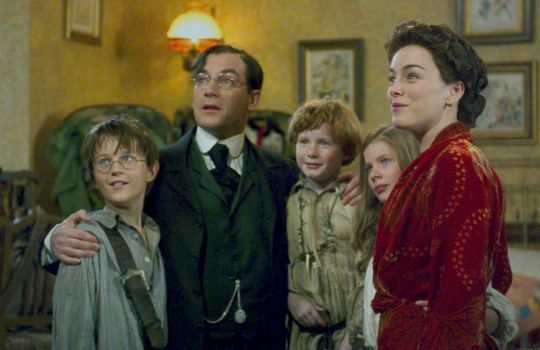
Peter Pan is an almost perfect adaptation. It matches the humour, the tone and the vision of J.M.Barrie. But I can certainly understand why the film didn’t do so well at the box office. In the month it was released, there was an unfair amount of competition, namely the film Lord of the Rings — The Return of the King. And as an adult, I can now understand why it’s not the film people think of or remember when it comes to Peter Pan adaptations. And it’s not just because it doesn’t fit the elfish, jolly trickster persona that Disney has created.
The film adaptation suffers more from what it doesn’t do — such as maintaining a stable tone and consistent editing — than from what it does. It’s one of those films that would have benefited from being much longer. That way, the inconsistent tone and some of the rushed parts of the adaptation would be much more balanced. It feels like it was missing an extra twenty minutes. For example, the film is narrated by an older version of Wendy, but without the deleted ending where it becomes properly clear that it’s her telling the story to tie everything together, the ending feels a little abrupt. Say what you will about Tim Burton’s adaptation of the Series of Unfortunate Events, but the audience could see where the film’s narration was coming from the whole time. I think if they knew the alternate ending wasn’t going to work (that scene is a classic example of something working well in the novel but not in the film), they should have removed the narrator altogether with the deleted ending and adjusted the film accordingly. They should have extended some scenes so that parts of the film weren’t rushed, such as the introduction, and the story would have been left more up to interpretation as there was no voiceover throughout.
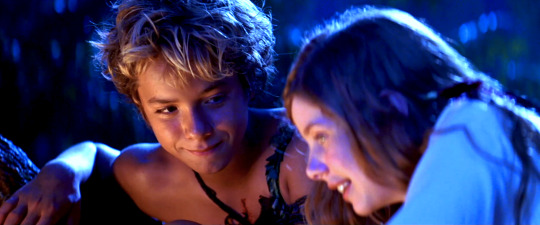
Despite its weaknesses, P.J.Hogan’s Peter Pan is still an underrated masterpiece 20 years later. It is an irresistible film that captivates and warms the heart. The film adaptation has certainly stood the test of time, staying true to the original while adding its own flavour to the story. It is full of magic, wonder and heart. It was clearly made by people who loved the origins of the story and explored where they came from, while also digging deep into the text to reshape the character arcs in a fresh and meaningful way. They succeed in capturing J.M.Barrie’s original message, which is that growing up is a natural progression of life, but that doesn’t mean leaving childhood behind entirely. That it is important to maintain a healthy balance between the two: Taking responsibility while appreciating the joys of life. From the vibrant colour palette to the goosebump-inducing music to the solid performances and gorgeous chemistry between Jeremy Sumpter and Rachel Hurd-Wood, my love for this adaptation will never end, no matter how old I am.
#peter pan#peter pan 2003#jason isaacs#jeremy sumpter#rachel hurd wood#peter and wendy#j.m barrie#peter x wendy#wendy darling#analysis#tinkerbell#captain hook#disney#peter pan and wendy#disney +#hook#James Newton Howard#olivia williams#novel#classic literature#filmmaking#film#cinema#culture#movie review#darling pan#finding neverland#film review#peter pan (2003)#peter pan live action
226 notes
·
View notes
Text
I wrote a reply to this post but OP has deleted it and even though I should probably leave well enough alone, it got to me that I could have sworn I saw this post months ago and then realized it was actually from yesterday. This is a long reply so I'm putting it under a cut, but after I went to OP's blog and saw a post from them complaining how mean everyone was to them on this post, I replied to say I'm sorry if they got any anon hate I don't know about but otherwise none of the comments on this post were mean or hateful, they just disagreed with OP. I pointed out that this is partly because they cited non-canon events as canon, and OP immediately blocked me (this may be why I can't reblog the post even from another user, though that's not how tumblr usually works so who knows). I can't help but feel that OP's post was made in bad faith, as a result, and I've seen enough people on this hellsite who are more interested in protecting their egos than admit when they could have been approached something more thoughtfully, so I'm diving in. If you're going to say a character "is very interesting to study" while doing the exact opposite, then you'd better have the critical analysis skills and textual evidence to back it up.
I think OP has some misconceptions that are frustratingly common, and seem to stem from people not having read the books, or not read them for a long time, and conflating the movies with canon. While I mostly agree with the replies above, I want to take this opportunity to cite the text to refute some of OP's points. I often forget details from the text, but I choose to either look them up before asserting unconfirmed points as fact (Potter Search is a great tool, or you can just do a ctrl+F search if you have the books digitally), or else I usually state clearly that I'm not sure if I remember something correctly and don't have the spoons to look it up.
I saw OP say in the comments in response to someone arguing their points:
"that's your interpretation, I have mine, I think both can coexist within the material we are given."
It doesn't sit right with me that so many people think that referring to their subjective memory of what the text meant to them is the same as actually citing it and offering an explanation. OP's interpretation can't exist within the material given, because some of it doesn't exist in the material at all, and you can't interpret what isn't there. OP is essentially claiming to have done critical analysis, and although no one is required to always critique a text analytically on a tumblr post, I find it upsetting when people claim to do so while failing to cite a single source to support their argument. To me it sounds like someone trying to pass off a creative writing essay as an academic research paper, and in an age of rampant propaganda and knee-jerk reblogs that eschew critical thinking, I feel an almost compulsive need to go through OP's reply and argue it with the textual evidence they conveniently avoided, if for no other reason than to show why it's important to discern between loosely formed opinions and informed ones.
I also want to explain why I don't accept the films as canon, because while I do think that canon can exist across several mediums (such as with Good Omens, in which at least one of the writers of the text is directly involved in writing the TV series), I don't think that applies to Harry Potter because the original author was only marginally involved in the films, in only a consultant role, and had little input on the writing. The HP films are an interpretation as written from the perspective of Steve Kloves, except for OoTP, which was written by Michael Goldenberg. I've gone into it on other posts, but suffice to say these interpretations did not prioritize story and character development and were often influenced by pressure from the studio to prioritize marketing opportunities over storytelling. Important elements like foreshadowing and themes were not carried over from the text to the screen. These changes affected the storytelling significantly and left out crucial elements. This, combined with the films having been written with little to no involvement from the original author, is why I feel the films can't be taken as canon. This doesn't mean they can't be enjoyed by any means, just that they scenes that appear in the films but not in the text, or are presented differently on screen than in the text, are not a reasonable basis for character analysis.
And now, on to OP's ask:
"I think he is a very good representation of a man who felt insecure in his manhood; his male ego was permanently wounded by James' bullying and he decided to make it everyone else's problem by being the most insufferable teacher at Hogwarts."
The first thing we have to establish is that the books are told from Harry's perspective, so we have to take narrative bias into account. Calling Snape "the most insufferable teacher at Hogwarts" is a subjective statement and I can only assume it's based in Harry's biased perspective as narrator, given that he and Snape have a bad relationship from the outset. I have a brief analysis here about how Snape dislikes Harry because in their first class together he interprets Harry's ignorance of the course material as a lack of curiosity and appreciation for his gifts as a wizard, while also recognizing something of his own experiences with childhood poverty and abuse in Harry. Harry, being ignorant of these factors, just feels singled out for hate by a strict teacher, and their relationship deteriorates throughout the rest of the series, until the end of the final book.
To pull back from the narrative bias, let's look at some of the other teachers are Hogwarts:
McGonagall:
“Miss Granger, you foolish girl, how could you think of tackling a mountain troll on your own?”
Hermione hung her head. Harry was speechless. Hermione was the last person to do anything against the rules, and here she was, pretending she had, to get them out of trouble. It was as if Snape had started handing out sweets.
“Miss Granger, five points will be taken from Gryffindor for this,” said Professor McGonagall. “I’m very disappointed in you. If you’re not hurt at all, you’d better get off to Gryffindor Tower. Students are finishing the feast in their Houses.”
Philosopher's Stone, Ch. 10.
“I’m disgusted,” said Professor McGonagall. “Four students out of bed in one night! I’ve never heard of such a thing before! You, Miss Granger, I thought you had more sense. As for you, Mr. Potter, I thought Gryffindor meant more to you than this. All three of you will receive detentions — yes, you too, Mr. Longbottom, nothing gives you the right to walk around school at night, especially these days, it’s very dangerous — and fifty points will be taken from Gryffindor.”
“Fifty?” Harry gasped — they would lose the lead, the lead he’d won in the last Quidditch match.
“Fifty points each,” said Professor McGonagall, breathing heavily through her long, pointed nose.
Philosopher's Stone, Ch. 15
In just the first book we see McGonagall punish Hermione for successfully defending herself against a troll and take house points, then sends her back to her common room without getting medical attention, as if a ten year old can be responsible for assessing how badly they're hurt. A few chapters later McGonagall takes several hundred points from students in her own house (more than we see any other teacher do at one time throughout the series), and assigns the students detention on top of it. As we later see in the same chapter, the detentions aren't even served with her directly, but instead the children - again, ten years old - are sent into the Forbidden Forest at night with only Hagrid to protect them, to hunt down whatever creature is vicious and cunning enough to kill unicorns.
Although it's said that Snape favors the students in his own house, he doesn't seem to be the only one:
“Potter's been sent a broomstick, Professor,” said Malfoy quickly.
“Yes, yes, that’s right,” said Professor Flitwick, beaming at Harry. “Professor McGonagall told me all about the special circumstances, Potter. And what model is it?”
“A Nimbus Two Thousand, sir,” said Harry, fighting not to laugh at the look of horror on Malfoy’s face. “And it’s really thanks to Malfoy here that I’ve got it,” he added.
Philosopher's Stone, Ch. 10
Not only did McGonagall make an exception to school practices and allow Harry on his house Quidditch team despite being a first year, she used either school funds or her own (unclear) to purchase a first-rate broom for him. We know the school has brooms, as first years are not allowed their own and they are provided for flying lessons, and because “Harry had heard Fred and George Weasley complain about the school brooms” (PS ch. 9). And yet, McGonagall ensures Harry has his own broom, and an expensive one, new enough to be the show model in a shop window in Diagon Alley a few months earlier:
“Several boys of about Harry’s age had their noses pressed against a window with broomsticks in it. ‘Look,’ Harry heard one of them say, ‘the new Nimbus Two Thousand - fastest ever -”
-Philosopher's Stone, Ch. 5
If we're discussing which teachers are Hogwarts are the most "insufferable" then we also have to talk about Hagrid, who might mean well and be affectionate, but is also irresponsible and dangerous.
In Philosopher's Stone, Hagrid:
Punishes Dudley, a child, for his parents' offenses, the final straw being his father insulting Dumbledore (Ch. 4). While Hagrid acknowledges that he shouldn't have lost his temper, he also admits that his intention had been to turn Dudley fully into a pig.
Hatches a dragon in his cabin (Ch. 14), tries to raise it illegally and against the animal's need of care, and Harry, Ron, and Hermione (again, ten year olds) have to fix the situation and get Ron's brother to find some friends to take the dragon away safely and prevent Hagrid losing his job (Ch. 14). In the process Hagrid endangers himself as well as the children, and it's because of this that McGonagall gives them detention and deducts hundreds of house points. Hagrid not only allows the children to endanger themselves for his sake, but to be punished and subsequently ostracized by their peers also for his sake.
The reason he even has a dragon is, as we find out in Ch. 16, because he was foolish enough to accept it from a faceless stranger in exchange for unwittingly divulging the secret to getting past the three headed dog guarding the Philosopher's Stone (and the stranger later turns out to be Quirrel/Voldemort).
In Prisoner of Azkaban, Hagrid:
Starts his first lesson with a volatile creature (Ch. 6) and, although Malfoy acted irresponsibly, Hagrid was nevertheless the teacher and responsible for providing course material consistent with the experience level and maturity of his students' age.
Gets drunk and has to be taken care of by Harry, Ron, and Hermione (again, children) (Ch. 6)
Skipping ahead to Order of the Phoenix ch. 30, we find out Hagrid
Compromised his return from the mission Dumbledore sent him on by bringing a giant back to England.
Brought said giant into the school grounds and left him in the Forbidden Forest.
Asks Harry and Hermione (still children) to look after him if Hagrid is sacked.
Although Hagrid means well, his actions are consistently thoughtless and irresponsible, requiring those around him - often Harry, Ron, and Hermione - to fix the damage he causes. Although I think it remains subjective which teacher at Hogwarts is the "most insufferable" I think Hagrid is a strong enough candidate to qualify OP's interpretation of Snape holding that title as extremely contestable. Of course, since the books are presented through the lens of Harry's narrative bias, and he's fond of Hagrid, respects McGonagall, and dislikes Snape, an uncritical reading could lead one to OP's conclusions. However, a more objective analysis of the text shows that many teachers at Hogwarts are strict, punitive, biased, and wreak havoc on students in ways that make the Snape's actions look fairly tame, or at least the norm. And this is excluding an analysis of various DADA professors like Lockhart and Crouch/Moody, who were insufferable in their own rights (Lockhart was smarmy and dishonest to the point it risked students' lives; Crouch/Moodly transfigured a child into a ferret and humiliated him with torture as a disciplinary measure and deliberately triggered Neville's trauma in class).
OP continues their reply to say:
Add to this that he is a halfblood and only his mother was around, iirc?
They don't recall correctly. Snape, whose father was a muggle and whose mother was a witch, was indeed a half-blood (as is evidenced by him being revealed to be the Half-Blood Prince - I assume I don't need to cite a source as this is a pretty well-known fact and the literal title of an entire HP book, but should you need a reference it's in Ch. 28 of HBP). Both his parents were around in his childhood:
Snape staggered - his wand flew upwards, away from Harry - and suddenly Harry’s mind was teeming with memories that were not his: a hook-nosed man was shouting at a cowering woman, while a small dark-haired boy cried in a corner …
-Order of the Phoenix, Ch. 26
‘How are things at your house?’ Lily asked.
A little crease appeared between his eyes.
‘Fine,’ he said.
‘They’re not arguing any more?’
‘Oh, yes, they’re arguing,’ said Snape. He picked up a fistful of leaves and began tearing them apart, apparently unaware of what he was doing. ‘But it won’t be that long and I’ll be gone.’
‘Doesn’t your dad like magic?’
‘He doesn’t like anything, much,’ said Snape.
-Deathly Hallows, Ch. 33
We know that Snape's father was around because he's mentioned both in Snape's memories in OoTP that Harry accidentally invades during an Occlumency lesson, and when we see in Snape's memories that he gives Harry as he dies. Lily asks about his home life by referring to both his parents, implying that his dad is a consistent presence at home. We also know from JK Rowling that Snape's father "didn't hold back when it came to the whip" but this is supplementary and not mentioned in canon, so I don't expect anyone to refer to it when analyzing the text, I'm just adding it as bonus material.
Continuing on with OP's reply:
Snape, Voldemort and Harry all act like foils of each other in that sense, but whereas Voldemort fixated on his blood status as the main reason for his insecurities, Snape fixated on Lily.
So much to unpack here. Firstly, all of this should be backed up by examples from the text, as they are subjective readings that have significant bearing on character analysis.
Snape, Harry, and Voldemort don't act like foils of each other. For one thing, a character doesn't act like a foil, a character either is or isn't one. That being said, I don't know OP's background and there could be a language barrier because English isn't everyone's first language, I'm just being pedantic. Even with that in mind, the statement remains incorrect. A foil is a literary device - a character who contrasts with another character, often with the protagonist. It is not a choice a character makes or an action they take.
In Philosopher's Stone Snape is set up as a foil to Harry in order to misdirect the reader from suspecting the real villain, Quirrel/Voldemort. Snape is presented as secretive, sneaky, and nefarious, contrasting Harry's role as a protagonist who is outspoken, honest, and brave. As the series progresses, Snape, along with Voldemort, are eventually shown to have more parallels than contrasts with Harry. Snape and Voldemort were born into muggle poverty, and although Harry was raised in a middle class home by the Dursleys, they thrust poverty and neglect onto him in a way that parallels his childhood of neglect and want with that of Snape and Voldemort. Snape's father was abusive, as was Harry's guardian, Vernon Dursley. Harry, Voldemort, and Snape all had traumatic experiences growing up in muggle environments. If anything, Snape and Voldemort might be foils to Harry in that they both harbored resentment for their muggle fathers in ways that signified the separation between the wizarding and muggle world, while Harry's experiences with the Dursleys didn't color his image of muggles in a comparable way.
The contrast between Harry, Snape, and Voldemort is in the way each of them deals with their trauma. As Dumbledore says:
"It is our choices, Harry, that show what we truly are, far more than our abilities."
-Chamber of Secrets, Ch. 18
This becomes one of the overarching themes of the HP series, Harry, Snape, and Voldemort are all examples of how their choices took them to such different places in life from their comparable childhoods.
At school Voldemort was a handsome boy with talent, intelligence, and the recommendations of his teachers, but he chose to pursue power instead of success:
“He reached the seventh year of his schooling with, as you might have expected, top grades in every examination he had taken. All around him, his classmates were deciding which jobs they were to pursue once they had left Hogwarts. Nearly everybody expected spectacular things from Tom Riddle, prefect, Head Boy, winner of the Special Award for Services to the School. I know that several teachers, Professor Slughorn amongst them, suggested that he join the Ministry of Magic, offered to set up appointments, put him in touch with useful contacts. He refused all offers. The next thing the staff knew, Voldemort was working at Borgin and Burkes.”
Half-Blood Prince, Ch. 20
Snape chose to become a Death Eater for reasons we can only assume. We know he was in Slytherin during an era when Voldemort was in power and many of his allies had children in Slytherin house. At least two of Snape's dorm-mates, Mulciber and Avery, are canonically acknowledged to have become Death Eaters (both are present at the Ministry when Harry and his friends fight the Death Eaters in the Department of Mysteries in OoTP Ch. 35). It's unclear whether Snape chose to become a Death Eater out of admiration for them or out of peer pressure, or perhaps a lack of other options, while at school:
'… thought we were supposed to be friends?’ Snape was saying. ‘Best friends?’
‘We are, Sev, but I don’t like some of the people you’re hanging around with! I’m sorry, but I detest Avery and Mulciber! Mulciber! What do you see in him, Sev? He’s creepy! D’you know what he tried to do to Mary Macdonald the other day?’
Lily had reached a pillar and leaned against it, looking up into the thin, sallow face.
‘That was nothing,’ said Snape. ‘It was a laugh, that’s all -‘
‘It was Dark Magic, and if you think that’s funny -‘
‘What about the stuff Potter and his mates get up to?’ demanded Snape. His colour rose again as he said it, unable, it seemed, to hold in his resentment.
-Deathly Hallows, Ch. 33
It's unclear what Snape thinks of Avery and Mulciber, as his reply to Lily is downplaying but doesn't defend their actions. We see Snape's indecisiveness later in the argument he has with Lily after he calls her a Mudblood:
'It’s too late. I’ve made excuses for you for years. None of my friends can understand why I even talk to you. You and your precious little Death Eater friends - you see, you don’t even deny it! You don’t even deny that’s what you’re all aiming to be! You can’t wait to join You-Know-Who, can you?’
He opened his mouth, but closed it without speaking.
‘I can’t pretend any more. You’ve chosen your way, I’ve chosen mine.’
‘No - listen, I didn’t mean -‘
‘- to call me Mudblood? But you call everyone of my birth Mudblood, Severus. Why should I be any different?'
-Deathly Hallows, Ch. 33
Although Snape does ultimately choose to become a Death Eater, we see in his reply to Lily about both Avery and Mulciber and later her assumption that they all want to become Death Eaters that Snape doesn't argue for or against her accusations, but instead is evasive and unsure of himself. He opens his mouth to speak when she accuses him of wanting to become a Death Eater, but then closes it again without saying anything - he can neither argue against her point, nor state clearly, let alone with any kind of conviction, that this is indeed his ambition. It can be argued that it's the passivity of his choice that lands him with a Dark Mark on his arm, and it's the active choice he makes to risk his life in order to defect from Voldemort's ranks and turn spy that defines his character and without which Harry could not have defeated Voldemort.
Harry, as the protagonist, is also significantly defined by the theme of choice:
'But, sir,’ said Harry, making valiant efforts not to sound argumentative, ‘it all comes to the same thing, doesn’t it? I’ve got to try and kill him, or -‘
‘Got to?’ said Dumbledore. ‘Of course you’ve got to! But not because of the prophecy! Because you, yourself, will never rest until you’ve tried! We both know it! Imagine, please, just for a moment, that you had never heard that prophecy! How would you feel about Voldemort now? Think!’
Harry watched Dumbledore striding up and down in front of him, and thought. He thought of his mother, his father and Sirius. He thought of Cedric Diggory. He thought of all the terrible deeds he knew Lord Voldemort had done. A flame seemed to leap inside his chest, searing his throat.
‘I’d want him finished,’ said Harry quietly. ‘And I’d want to do it.’
‘Of course you would!’ cried Dumbledore. ‘You see, the prophecy does not mean you have to do anything! But the prophecy caused Lord Voldemort to mark you as his equal … in other words, you are free to choose your way, quite free to turn your back on the prophecy! But Voldemort continues to set store by the prophecy. He will continue to hunt you … which makes it certain, really, that -'
‘That one of us is going to end up killing the other,’ said Harry. ‘Yes.'
-Half-Blood Prince, Ch. 33
There's a clear point made by the author through Dumbledore as her proxy here, that choice is what matters, not fate. It's Harry's choices that make him the person he is and lead him to eventually defeat Voldemort. While Snape, Voldemort, and Harry all can be contrasted through the lens of their choices, this does not make them foils, as it is the the theme of choice and how it is exemplified by each character that makes them unique, but their experiences and many of their character traits (boldness, bravery, a personal sense of conviction) that make them parallels of one another. Each of them occupies their own place on the spectrum between the light and dark that the series establishes, Voldemort at the dark end, Harry at the light, and Snape in the grey area between them.
OP goes on to say:
His character is all about male entitlement, he was obsessed with her at Hogwarts and then showed to have no boundaries as he went into her house to cradle her dead body in front of her traumatized kid.
There's a lot to unpack here, and it's particularly challenging because you can't provide textual evidence for something that didn't happen in the text. After the above scene from Ch. 33 of DH in which Lily ends her friendship with Snape, we never see them interact again:
'No - listen, I didn’t mean -‘
‘- to call me Mudblood? But you call everyone of my birth Mudblood, Severus. Why should I be any different?’
He struggled on the verge of speech, but with a contemptuous look she turned and climbed back through the portrait hole …
The corridor dissolved, and the scene took a little longer to reform: Harry seemed to fly through shifting shapes and colours until his surroundings solidified again and he stood on a hilltop, forlorn and cold in the darkness, the wind whistling through the branches of a few leafless trees. The adult Snape was panting, turning on the spot, his wand gripped tightly in his hand, waiting for something or for someone …'
-Deathly Hallows, Ch. 33
The scene in the corridor in front of Gryffindor Tower between a fifth year Snape and Lily leads directly into the scene where Snape begs Dumbledore to protect the Potters (which I wrote an analysis of a few months ago but is too long a subject to derail this post for). We see no more interactions between Snape and Lily, and therefore there is no canonical support for the idea that Snape behaved obsessively or failed to respect her boundaries.
There's also no mention of Snape going to Godric's Hollow at all after her death. Snape holding Lily's dead body is only shown in the film version of Deathly Hallows, and as mentioned, the films are not canon. That moment doesn't exist in the text and can't be considered in an analysis of Snape's character. The scene on the hilltop leads directly into the scene of Snape crying in Dumbledore's office:
The hilltop faded, and Harry stood in Dumbledore’s office, and something was making a terrible sound, like a wounded animal. Snape was slumped forwards in a chair and Dumbledore was standing over him, looking grim. After a moment or two, Snape raised his face, and he looked like a man who had lived a hundred years of misery since leaving the wild hilltop.
‘I thought … you were going … to keep her … safe …’
‘She and James put their faith in the wrong person,’ said Dumbledore. ‘Rather like you, Severus. Weren’t you hoping that Lord Voldemort would spare her?’
Snape’s breathing was shallow.
-Deathly Hallows, Ch. 33
This is the only depiction of Snape immediately following the Potters' deaths. The scene of him cradling Lily's dead body was Steve Kloves' invention and has no basis in canon. If anything, Snape's actions in canon can be interpreted to show that he respected the boundaries Lily set, and that even when her life was at risk he chose to go to Dumbledore - who he thought might kill him on sight - rather than talk to her directly after she ended their friendship. In addition, in all the information the text gives about the night Voldemort fell in Godric's Hollow and Hagrid collected Harry to take him to Privet Drive, there's no mention of Snape whatsoever.
There isn't much in the text to support the interpretation that Snape exemplified male entitlement either. So far we've seen him being as strict, if not milder, than other teachers at the school, his favoritism is also comparable to that of other teachers - implying it's more of a norm than an example of entitlement - and there are no canonical examples to support the argument that he was obsessed with Lily or violated her boundaries. Snape struggles to argue with Lily when she accuses and berates him, and the usual markers of patriarchal entitlement - silencing women, gaslighting, dismissing women's opinions, talking over them - are all nowhere to be found in any of their interactions. The only time we see him lash out at Lily is when he calls her Mudblood (OoTP Ch. 28) which, while inexcusable, he does under traumatic duress, and is not indicative of his usual interactions with her, as exemplified by the fact that she ends their friendship over it. As cited before:
'No - listen, I didn’t mean -‘
‘- to call me Mudblood? But you call everyone of my birth Mudblood, Severus. Why should I be any different?’
There's a clear implication that Snape has never called her this before. An argument can also be made that it speaks volumes of Lily's own biases, or perhaps her own affection for Snape (who, not long before this, was still her best friend), that she excused this behavior from him when it was directed at others, and only took issue with it when it was directed at herself. That, combined with Lily's own acknowledgment that they were "best friends" shows that Snape's relationship with her was a balanced, consensual one even when it became strained, up until their friendship ended.
Continuing with OP's points:
He only saw Lily as a trophy to be possessed, which you can see from the way he hated Harry, because Harry reminded him Lily wasn't his and that Lily had sex with another man.
There's no support for this in the text anywhere and is pure conjecture. I can appreciate it being OP's headcanon, but it's certainly not a result of studying the text and relying on it to form opinions, but rather seems to be OP projecting pre-conceived notions onto Snape as a character and trying to find justification for it. I've written a whole post extrapolating Snape's first class with Harry, but the tl;dr is that Snape, who grew up in muggle poverty and knew Aunt Petunia enough to guess that Harry didn't fare well in her care when he showed up at school bearing signs of neglect, likely expected Harry to have the same hunger for learning that he himself did at Harry's age. Instead, Harry couldn't answer a single one of his questions and showed no curiosity or enthusiasm towards being a wizard as far as Snape could tell.
Nevertheless, even though Snape did seem to dislike Harry, hate is an awful strong word given that it is revealed at the end of Deathly Hallows that Snape has risked his own life to protect him. This isn't particularly surprising when you consider that this goal was established as early as Philosopher's Stone, when Snape protected him, which Harry initially interpreted as Snape trying to kill him:
Harry couldn’t take it in. This couldn’t be true, it couldn’t.
‘But Snape tried to kill me!’
‘No, no, no. I tried to kill you. Your friend Miss Granger accidentally knocked me over as she rushed to set fire to Snape at that Quidditch match. She broke my eye contact with you. Another few seconds and I’d have got you off that broom. I’d have managed it before then if Snape hadn’t been muttering a counter-curse, trying to save you.’
‘Snape was trying to save me?’
‘Of course,’ said Quirrell coolly.
-Philosopher's Stone, Ch. 17
Again, the story is told through the lens of Harry's bias, but that doesn't mean his opinions of Snape reflect Snape's character. As another example, there's an implication in OoTP that Snape, having seen some of the Dursleys' abuse of Harry through his memories during Occlumency lessons, passed this information on in an effort to protect Harry, and that this is the reason why several Order members (Arthur Weasley and Moody in particular) show up at King's Cross at the end of the schoolyear and threaten the Dursleys to stop mistreating him. There seems to be no other explanation in the text for why these adults are suddenly aware of the abuse Harry experiences, except that Snape, who was abused as a child himself, and who is an Order member himself, is the only adult in the series who we see witness Harry's mistreatement firsthand. At no point in the narrative do we see Harry complain about the Dursleys to the adults he trusts or ask them for help, merely to spend his holidays away from them without explanation.
While Snape did indeed dislike Harry and often compared him to his father, his dislike for James had much more significant roots in bullying and trauma than in his concern for Lily's relationship with him. It's established in canon that James Potter and Sirius Black dislike Snape from the outset (as in the scene on the Hogwarts Express in DH Ch. 33). In their fifth year, Sirius - annoyed that Snape is so curious about where Lupin goes each month - tricks Snape into following the tunnel under the Whomping Willow to the Shrieking Shack, as Lupin tells Harry:
'Professor Snape was at school with us. ... Sirius here played a trick on him which nearly killed him, a trick which involved me -‘
Black made a derisive noise.
‘It served him right,’ he sneered. ‘Sneaking around, trying to find out what we were up to … hoping he could get us expelled …'
'Severus was very interested in where I went every month,’ Lupin told Harry, Ron and Hermione. ‘We were in the same year, you know, and we - er - didn’t like each other very much. He especially disliked James. Jealous, I think, of James’s talent on the Quidditch pitch … anyway, Snape had seen me crossing the grounds with Madam Pomfrey one evening as she led me towards the Whomping Willow to transform. Sirius thought it would be - er - amusing, to tell Snape all he had to do was prod the knot on the tree-trunk with a long stick, and he’d be able to get in after me. Well, of course, Snape tried it - if he’d got as far as this house, he’d have met a fully grown werewolf - but your father, who’d heard what Sirius had done, went after Snape and pulled him back, at great risk to his life … Snape glimpsed me, though, at the end of the tunnel. He was forbidden to tell anybody by Dumbledore, but from that time on he knew what I was …'
-Prisoner of Azkaban, Ch. 18
From this we can deduce that Sirius intended for Snape to die, or at least get severely injured, and that even as a grown adult Sirius doesn't regret trying to mete out this punishment to him as retaliation for curiosity. We can also deduce that Lupin was unaware of Sirius' intention and did not consent to be used as a weapon. For his part, Snape never did reveal that Lupin was a werewolf while at school, or even during that school year, until after Lupin ran amok on Hogwarts grounds, endangering others' lives, including Harry's.
There are other meta posts that go into Lupin's insecurities and vulnerabilities, but in short, he was grateful just to be allowed into the school as a student, let alone to have friends, and was in no position to challenge James and Sirius. Even as a prefect he didn't curb their behavior, as we see when he allows James to bully Snape later that year after their O.W.L.s:
'Leave him alone,’ Lily repeated. She was looking at James with every sign of great dislike. ‘What’s he done to you?’
‘Well,’ said James, appearing to deliberate the point, ‘it’s more the fact that he exists, if you know what I mean …’
Many of the surrounding students laughed, Sirius and Wormtail included, but Lupin, still apparently intent on his book, didn’t, and nor did Lily.
‘You think you’re funny,’ she said coldly. ‘But you’re just an arrogant, bullying toerag, Potter. Leave him alone.’
‘I will if you go out with me, Evans,’ said James quickly. ‘Go on … go out with me and I’ll never lay a wand on old Snivelly again.'
-Order of the Phoenix, Ch. 28
James acknowledges that he has no real reason to bully Snape and uses violence as a bargaining chip to coerce Lily into going out with him (James' behavior reflects much more entitlement than Snape's, in my opinion). He also chokes Snape with a bar of soap and then assaults him by dangling him upside down and removing his trousers (threatening to remove his underwear but we don't see it happen).
Lily herself refers to James as arrogant, and it's this trait, along with the trauma from James' bullying of him, that Snape perceives in Harry. He doesn't resent Harry for looking like his father because it reminds him that Lily had sex with another man, he resents him for it because of all the trauma James inflicted on him. The conflict-laden relationship between Snape and the Marauders is a significant driver of the story through several of the books and OP seems subjective to the point of being problematic in ignoring it completely and instead focusing Snape's dislike of Harry onto an invented idea of sexual jealousy that doesn't exist in the text.
It's never stated whether Snape had romantic feelings for Lily, or vice versa, only that they were friends. The closest we see to a hint of this is when “The intensity of his [Snape's] gaze made her [Lily] blush," or when “The moment she [Lily] had insulted James Potter, his [Snape's] whole body had relaxed, and as they walked away there was a new spring in Snape’s step …”
Lily's blush could be interpreted as implying she was attracted to him, or conversely that she didn't and felt awkward thinking he might be attracted to her. Similarly, Snape's relief at her insulting James can be interpreted as indicative of his attraction to her, or of him simply being worried about a friend hanging out with people he perceived as dangerous and was relieved to learn she wasn't putting herself in the way of danger by becoming friends with them. Although JK Rowling has said that her intention was for Snape's affections towards Lily to be romantic, and that she may have returned his affection had he not chosen the path he did, this is - like the note about Snape's father whipping him - extratextual and more of an interesting fact than a bit of canon to be extrapolated from the text.
Finally, OP says:
His interest in the Death Eaters was only secondary to his obsession with Lily and I think Lily rejecting him pushed him toward joining the Death Eaters, because, once again, his male ego was bruised and he needed to replace it with something else.
We've already seen that Snape's interest in joining the Death Eaters was a big part of Lily's reason for ending their friendship. Therefore, logically, Lily's decision didn't push him towards becoming a Death Eater, but rather isolated him from having any support system outside of the DEs. She didn't reject him, because rejection is the refusal or dismissal of another person's advances or proposal. They were friends, meaning they had a mutually consensual platonic relationship. Lily therefore didn't reject Snape, she ended their friendship and, as already stated, nothing in canon implies he didn't respect her boundaries.
As we have also seen in canon, Snape was bullied at school and had, at best, a neglectful and dysfunctional home environment in his childhood. In addition, he shared a dorm with students actively interested in becoming Death Eaters, and his one social lifeline away from them was cut off when he called Lily a Mudblood. What OP interprets as Snape's male ego being bruised is actually a much more complex set of social and emotional factors being described throughout the series to eventually reveal the profile of a character - young Snape - who was a vulnerable youth primed for radicalization by a violent faction of zealots. Although the enforcement and upholding of patriarchal norms is often a huge element of these kinds of social movements, that didn't seem to be the driving force for Snape based on everything we learn about his character. Instead, what we see is a boy who comes from abuse, lives in abuse at school, who loses all the support systems that might give him an alternative to the fascist cult he's being radicalized into which - if it's like most hate groups - would have been more than welcome to both take him in and help him cut his ties to anyone else in his life he might escape from them to.
It also goes against the argument that Snape was sexually obsessed with Lily that he continued to risk his life in order to protect her son an defeat her murderer for almost two decades after her death. He knew it would neither bring her back from the dead nor bring about forgiveness, and it goes without saying that sex was no longer an option. Framing Snape's motivation as obsession dismisses the realities of the complex and meaningful relationship we form as people, and the lasting, transformative influence we can have on each other, which is what Snape and Lily's story illustrates.
Finally, OP concludes with:
He remained mysterious up till the end and his back-and-forth with treason was very compelling to read about. So I hate him (as a "person") but he is such a good character narrative-wise and he is very interesting to study
OP openly admits to hating Snape, ie. having a bias against him, while stating he is "interesting to study" - except no part of their answer has shown that they've actually done so. Their arguments are unsupported in several ways, one being that they don't offer any evidence, and the other being that none can be found in the source text. What's ironic is that OP seems to resent Snape's subjective bias against Harry (and misinterpret his reasons for it in baseless ways) while also showing the exact same kind of bias against Snape themselves. You don't have to like a character by any means, but claiming that the kind of unfounded, superficial, and unsupported opinions that OP stated in their response have a basis in any kind of study of his character is ludicrous and an insult to the intelligence of anyone reading it.
#long post#I'd say sorry to OP for ripping into their post like this but they think people disagreeing with them politely is mean and hateful so#but yeah sorry not sorry when your argument is so unfounded that it can be shredded with an entire cited essay then maybe#reconsider the claim that your opinions have any basis in study#and look I don't think OP is stupid by any means I think they knew exactly what they were doing and that's why I decided to argue them#even if they won't see it#I usually don't tend to argue with haters and prefer to spend my allotted hellsite time delving into meta but this one got to me
22 notes
·
View notes
Text
20th anniversary of Peter Pan (2003)
Peter Pan

International theatrical release poster
Directed by: P. J. Hogan
Screenplay by:
P. J. Hogan
Michael Goldenberg
Based on: Peter and Wendy by J. M. Barrie
Produced by:
Lucy Fisher
Douglas Wick
Patrick McCormick
Starring:
Jeremy Sumpter
Jason Isaacs
Rachel Hurd-Wood
Richard Briers
Olivia Williams
Lynn Redgrave
Ludivine Sagnier
Geoffrey Palmer
Cinematography: Donald McAlpine
Edited by:
Garth Craven
Michael Kahn
Music by: James Newton Howard
Production companies:
Universal Pictures
Columbia Pictures
Revolution Studios
Red Wagon Entertainment
Allied Stars Ltd
Distributed by:
Universal Pictures (English-speaking territories and South Africa)
Columbia TriStar Film Distributors International (International)
Release dates:
18 December 2003 (Australia)
24 December 2003 (United Kingdom)
25 December 2003 (United States)
Running time: 113 minutes
Countries:
United Kingdom
United States
Australia
Language: English
Budget: $130 million
Box office: $122 million
#peter pan#wendy darling#john darling#michael darling#george darling#mary darling#captain james hook#mr smee#the lost boys#tinkerbell#peter pan 2003#20th anniversary
7 notes
·
View notes
Note
19 for sirius black (:
19. How about a relationship they have in canon that you don't like?
Ooh, that is a great question!
I think I can appreciate nearly all the relationships he has in canon in some form as they do really shape his story and what we know or can glean about him (even the adversarial ones, like that with Snape, are a delight to read), so there aren't really any I don't like, per se, but I suppose I find Molly's behaviour toward him in OotP the most obnoxious (I hate that Hermione seems to go a bit sour on him in that book as well because I think they're both brilliant, curious, passionate people with a keen sense of justice that I think if Sirius had lived, they'd have been great friends as adults (I like to pretend this sourness is because Hermione is jealous Crookshanks seems to like Sirius more than he does her, and not because she's bought into Molly's claptrap)), especially in the first few chapters.
I hate that she oversteps her bounds as Harry's friend's mum, and has known Sirius for all of a month and thinks she knows best with regards to the relationship Sirius and Harry can and should have with one another. Part of it, too, I think, is that I find her to be a bit of a micromanaging, overbearing, gossip-prone busybody, a bit of a bored housewife with petty and catty tendencies, and so I'm not inclined to really like her interacting with my fave, lmao, but I think it's mostly how much she oversteps where Harry is concerned and how that affects Sirius.
And it's Molly's bullshit assertion that Sirius only sees Harry as James that inspired Michael Goldenberg to have Sirius's last line be, 'Nice one, James!' in the OotP movie, which is, of course, completely unforgivable. Never forgive, never forget that transgression.
CHARACTER ASK GAME!
5 notes
·
View notes
Text

View of a crowd on sidewalk in front of the Fox Theatre. Cars in foreground. Marquee reads: "The Egyptian. Jean Simmons, Victor Mature, Gene Tierney, Michael Wilding, Edmund Purdom. Cinemascope in color stereophonic sound." Stamped on back: "Louis Goldenberg. Paramount Photo Service. 10088 Hart, Huntington Woods, Mich. WO 3-6232." 1954
Courtesy of the Burton Historical Collection, Detroit Public Library
#the egyptian#fox theatre#detroit#detroit history#fox#marquee#1950s#fifties#vintage#1954#louis goldenberg#detroit public library
60 notes
·
View notes
Text
TOP 2022
(31/12/2022)
Great recent movies (made since 2018) seen for the first time in 2022:
Les Passagers de la nuit(Mikhaël Hers, 2021/2)
Rachel Hendrix(Victor Nunez, 2022)
Memoria(Memory;Apichatpong Weerasethakul, 2021)
O Trio em Mi Bemol(The Kegelstatt Trio;Rita Azevedo Gomes;a.Éric Rohmer)
Ouistreham(Emmanuel Carrère, 2021)
The Ride(Ride;Alex Ranarivelo, 2018/9)
Pan de limón con semillas de amapola(Benito Zambrano, 2021)
Twist à Bamako(Mali Twist;Robert Guédiguian, 2021/2)
Mulher Oceano(Djin Sganzerla, 2020)
Greta(Neil Jordan, 2018)
Albatros(Xavier Beauvois, 2021)
À vendredi, Robinson(Mitra Farahani, 2022)
El Rey de todo el Mundo(Carlos Saura, 2021)
Great older movies (made before 2018) seen for the first time in 2022:
Saikai(Kimura Keigo, 1953)
Yuwaku(Temptation;Yoshimura Kōzaburō, 1948)
The Very Thought of You(Delmer Daves, 1944)
Dunia(Jocelyn Saab, 2005)
Strangers in Good Company/The Company of Strangers(Cynthia Scott, 1990)
Lawn Dogs(John Duigan, 1997)
What happened was...(Tom Noonan, 1993/4)
Tigerstreifenbaby wartet auf Tarzan(Rudolf Thome, 1997/8)
Rot und Blau(Rudolf Thome, 2002/3)
Yawaraka na hou(A Tender Place;Nagasaki Shunichi, 2001)
Tin ngai hoy gok(Lost and Found;Lee Chi-ngai, 1996)
The Journey of August King(John Duigan, 1995)
Off the Map(Campbell Scott, 2003)
Bed of Roses(Michael Goldenberg, 1995/6)
The Cake Eaters(Mary Stuart Masterson, 2007)
Trigger(Bruce McDonald, 2010)
Lian’ai yu yiwu(Love and Duty;Bu Wancang=Richard Poh, 1931)
Sparrows Dance (Noah Buschel, 2013)
Aoi sanmyaku+Zoku aoi sanmyaku(The Green Mountains 1+2/Blue Mountains 1+2;Imai Tadashi, 1949)
Du hast gesagt, dass du mich liebst(You Told Me You Loved Me;Rudolf Thome, 2005/6)
Yūwakusha(The Enchantment;Nagasaki Shunichi, 1989)
Nishi no majo ga shinda(The Witch of the West is Dead;Nagasaki Shunichi, 2008)
Hachi-kō Monogatari(Kōyama Seijirō, 1987)
Spoken Word(Victor Nunez, 2009)
The Missing Person (Noah Buschel, 2008/9)
The Devil Makes Three(Andrew Marton, 1952)
Christmas in Connecticut(Peter Godfrey, 1945)
Berlin Chamissoplatz(Rudolf Thome, 1980)
Rauchzeichen(Rudolf Thome,2005/6)
Among the Living(Stuart Heisler, 1941)
Voice in the Mirror(Harry Keller, 1958)
Glass Chin(Noah Buschel, 2013/4)
The Mule/Border Run/La frontera del crimen(Gabriela Tagliavini, 2012)
BigEden(Thomas Bezucha, 2000)
Endoretsu warutsu(Endless Waltz;Wakamatsu Kōji, 1995)
Keith Richards:Under the Influence(Morgan Neville, 2015)
Kōfuku no genkai(The Limit of Happiness;Kimura Keigo, 1948)
Friends(Elaine Proctor, 1993)
The Stone Boy(Christopher Cain, 1983/4)
Frau fährt, Mann schläft(Rudolf Thome, 2003/4)
Pêcheur d’Islande(Pierre Schoendoerffer, 1959)
Awdat mowatin(Return of a Citizen;Mohamed Khan, 1986)
Les Portes tournantes(The Revolving Doors;Francis Mankiewicz, 1988)
Remarkable recent movies:
Ras vkhedavt, rodesac cas vukurebt?(What Do We See When We Look at the Sky?;Aleksandr Koberidze, 2021)
Degas et moi(of 3e Scène)(Arnaud Des Pallières, 2019)
Ergej irekhgüi namar/Harvest Moon (Amarsaikhan Baljinnyam, 2021/2)
Viagem ao Sol(Journey to the Sun;Ansgar Schaefer & Susana de Souza Dias, 2021)
Illusions Perdues(Xavier Giannoli, 2021)
Petite Solange(Axelle Ropert, 2021)
Pacifiction/Tourment sur les îles(Albert Serra, 2022)
Where The Crawdads Sing(Olivia Newman, 2022)
The Batman(Matt Reeves, 2022)
Jaula(Ignacio Tatay, 2018)
Prapti(Receipt;Anuraag Pati, 2021)
Limbo(Soi Cheang, 2021)
Avec amour et acharnement(Both Sides of the Blade/Fire;Claire Denis, 2021/2)
Armageddon Time(James Gray, 2022)
Beurokeo(Broker;Kore-Eda Hirokazu, 2021/2)
America(Ofir Raul Graizer, 2021/2)
Faridaning ikki ming qo’shig’i(2000 Songs of Farida;Yalkin Tuychiev, 2020)
El sustituto(The Replacement;Óscar Aira, 2020/1)
Pokhar Ke Dunu Paar(On Either Side of the Pond;Parth Saurabh, 2022)
The Gigantes(Beatriz Sanchis, 2021)
Farha(Darin J. Sallam, 2021)
In My Own Time:A Portrait of Karen Dalton(Rich Peete & Robert Yapkowitz, 2020)
Barbarian(Zach Cregger, 2022)
Between Earth and Sky(The Lie;Veena Sud, 2018//20)
Watcher(Chloe Okuno, 2021/2)
A Christmas Mystery(Alex Ranarivelo, 2022)
A Hollywood Christmas(Alex Ranarivelo, 2022)
Les Intranquilles(Joachim Lafosse, 2021)
Unrueh(Unrest;Cyril Schäublin, 2022)
Malintzin 17(Eugenio & Mara Polgovsky, 2016//21/2)
Coda(Siân Heder, 2020/1)
Work in progress, Agosto 2022(José Luis Guerin, 2022)
A pesar de todo(Despite Everything;Gabriela Tagliavini, 2019)
They’ll Love Me When I ‘m Dead(Morgan Neville, 2018)
Pretend It’s A City(Martin Scorsese, 2020)
The Glorias(Julie Taymor, 2020)
Land(Robin Wright, 2021)
Chavalas(Carol Rodríguez Colás, 2020/1)
Alam(Firas Khoury, 2022)
Remarkable older movies:
Watashi no Niisan(My Older Brother;Shimazu Yasujirô, 1934)
Liu mang yi sheng(Doctor Mack;Lee Chi-ngai, 1995)
Hunt the Man Down(George Archainbaud, 1950)
Happy Here and Now(Michael Almereyda, 2002)
Hold That Co-Ed(Hold That Girl;George Marshall, 1938)
Transcendence(Wally Pfister, 2014)
Mr. Fix-It(Allan Dwan, 1918)
Down Home (Irvin V. Willat, 1920)
The Tall Stranger(Thomas Carr, 1957)
Pagdating Sa Dulo(At the Top;Ishmael Bernal, 1971)
Maowid ala ashaa(A Dinner Date;Mohamed Khan, 1981)
Zawgat Ragoul Mohem(The Wife of an Important Person;Mohamed Khan, 1987)
The Eclipse(Conor McPherson, 2009)
El Rebozo de Soledad(Roberto Gavaldón, 1952)
Desert Hearts(Donna Deitch, 1985)
Manhandled(Lewis R. Foster, 1949)
Accused of Murder(Joseph Kane, 1956)
The Marauders(Gerald Mayer, 1955)
Ramuru/Aibu(L’Amour/Caress/Love;Goshō Heinosukē, 1933)
Amerasia(Wolf-Eckart Bühler, 1985)
Careless Love(John Duigan, 2012)
Sieben Frauen(Formen der Liebe III)(Rudolf Thome, 1989)
Flirting(John Duigan, 1990/1)
One Night Stand(John Duigan, 1984)
Mouth to Mouth(John Duigan, 1978)
Kissed(Lynne Stopkewich, 1996)
Strike!/All I Wanna Do!(Sarah Kernochan, 1998)
In Old Kentucky(George Marshall, 1935)
Hei jun ma(A Mongolian Tale;Xie Fei, 1995)
Kojima no haru(Spring on Lepers’ Island;Toyoda Shirō, 1940)
Jack Higgins’ ‘A Prayer for the Dying’/A Prayer for the Dying(Mike Hodges, 1987)
Whispering City(Fedor Ozep, 1947)
Maytime in Mayfair(Herbert Wilcox, 1949)
Derby Day(Herbert Wilcox, 1952)
Hell’s Half Acre(John H. Auer, 1954)
Without Honor(Irving Pichel, 1949)
Big Night(Stanley Tucci & Campbell Scott, 1996)
In Old Arizona(Raoul Walsh & Irving Cummings, 1929)
Storm Over Lisbon(George Sherman, 1944)
Chant d’hiver(Otar Iosseliani, 2015)
Die rote Zimmer (Rudolf Thome, 2010)
Das Geheimnis(Rudolf Thome, 1994/5)
Der Philosoph(Rudolf Thome, 1988/9)
Winter of our Dreams(John Duigan, 1981)
Just Married(Rudolf Thome, 1997/8)
Ins Blaue(Into the Blue;Rudolf Thome, 2011/2)
The Sky Pilot(King Vidor, 1921)
Wine of Youth(King Vidor, 1924)
The Family Stone(Thomas Bezucha, 2005)
Les Deaux Souvenirs(Happy Memories;Francis Mankiewicz, 1981)
Istoriia Grazhdanskoí Voíny(Dziga Vertov & Nikolai Izvolov, 1922)
Jes’ Call Me Jim(Clarence G. Badger, 1920)
Jubilo(Clarence G. Badger, 1919)
Marguerite Duras:Worn Out with Desire to Write(David Wiles & Alan Benson, 1985)
Bestsennaia golova(V boevom kinsbarnike 10)(A Priceless Head;Boris Barnet, 1942)
Taifuken no onna(Ōba Hideo, 1948)
The Hasty Heart(Vincent Sherman, 1949)
A Kiss in the Dark(Delmer Daves, 1948/9)
Anesthesia(Tim Blake Nelson, 2014/5)
The Half-Breed(Stuart Gilmore;uc.Edward Ludwig, 1952)
The Two Fister(William Wyler, 1927)
Croupier(Mike Hodges, 1997/8)
Paranoid(John Duigan, 1999/2000)
The Leading Man(John Duigan, 1996)
Aucun regret(Emmanuel Mouret, 2015)
Tout le monde a raison(Emmanuel Mouret, 2017)
Invisible Agent(Edwin L. Marin, 1942)
Full Body Massage(Nicolas Roeg, 1995)
Saya no iru tousizu(Saya:Perspective in Love;Kimata Akiyoshi=Izumi Seiji, 1986)
Race Street(Edwin L. Marin, 1948)
The Wife(Tom Noonan, 1994/5)
Molly(John Duigan, 1998/9)
The Phenom (Noah Buschel, 2015/6)
Live A Little, Love A Little(Norman Taurog, 1968)
Café Com Canela(Coffee with Cinnamon;Ary Rosa & Glenda Nicácio, 2017)
And Now Tomorrow(Irving Pichel, 1944)
On An Island With You(Richard Thorpe, 1948)
One More Tomorrow(Peter Godfrey, 1946)
Il tradimento(Passato che uccide)(Riccardo Freda, 1951)
The Magnificent Dope(Walter Lang, 1942)
Hands Up!(Clarence G. Badger, 1926)
Venus im Netz/Venus.de-Die bewegte Frau(Venus Talking;Rudolf Thome, 2000/1)
Les Bons Débarras(Good Riddance;Francis Mankiewicz, 1980)
Beverly of Graustark(Sidney Franklin, 1926)
Millennium(Michael Anderson, 1989)
Gibraltar(Fedor Ozep, 1938/9)
Great movies watched again:
JLG/JLG(Autoportrait de décembre)(Jean-Luc Godard, 1994)
Yuki fujin ezu(Mizoguchi Kenji, 1950)
The Ten Commandments(Cecil B. DeMille, 1956)
They Were Expendable(John Ford;coll.Robert Montgomery, 1945)
The Civil War(from How The West Was Won;John Ford, 1962)
The Private Life of Sherlock Holmes(Billy Wilder, 1970)
The Bitter Tea of General Yen(Frank Capra, 1932)
Return of the Texan(Delmer Daves, 1952)
You Can’t Take It With You(Frank Capra, 1938)
Kiss Me Deadly(Robert Aldrich, 1955)
Desert Fury(Lewis Allen, 1947)
Japanese War Bride(King Vidor, 1951/2)
Storm Warning(Stuart Heisler, 1950/1)
The Circle(Frank Borzage, 1925)
There’s Always Tomorrow(Douglas Sirk, 1955/6)
A Romance of the Redwoods(Cecil B. DeMille, 1917)
Shockproof(Douglas Sirk, 1949)
Sergeant Rutledge(John Ford, 1960)
Bad Girl(Frank Borzage, 1931)
Interlude(Douglas Sirk, 1957)
The First Legion(Douglas Sirk, 1950/1)
Captain China(Lewis R. Foster, 1950)
Passage West(Lewis R. Foster, 1951)
The Invisible Man(James Whale, 1933)
Slávnyí malyí/Novgorodtsy(Boris Barnet, 1943)
Alyonka(Boris Barnet, 1961)
Hurry Sundown(Otto Preminger, 1966)
Gideon’s Day(Gideon of Scotland Yard;John Ford, 1958)
Anjô-ke no butôkai (Yoshimura Kôzaburô, 1947)
The World Moves On(John Ford, 1934)
Black Tuesday(Hugo Fregonese, 1954)
The Raid(Hugo Fregonese, 1954)
One Way Street(Hugo Fregonese, 1950)
Seven Thunders(Hugo Fregonese, 1957)
La Femme d’à côté(François Truffaut, 1981)
Double Messieurs(Jean-François Stévenin, 1986)
Fighter Squadron(Raoul Walsh, 1948)
State of the Union(Frank Capra, 1947/8)
The Lady Eve(Preston Sturges, 1940/1)L
Shchiedroe leto(Boris Barnet, 1950)
The Year My Voice Broke(John Duigan, 1987)
Liedolom(Boris Barnet, 1931)
All I Desire(Douglas Sirk, 1953)
Illegal(Lewis Allen, 1955)
L’Homme qui aimait les femmes(François Truffaut, 1977)
Very good movies watched again:
Crack-Up(Irving Reis, 1946)
Twilight For The Gods(Joseph Pevney, 1958)
Wide Sargasso Sea(John Duigan, 1992/3)
Ivanhoe(Richard Thorpe, 1951/2)
Polustanok(Boris Barnet, 1963)
Odnazhdy nochyu(Dark is the Night;Boris Barnet, 1944/5)
Mystery Submarine(Douglas Sirk, 1950)
Battle Hymn(Douglas Sirk, 1956/7)
Tomorrow Is Forever(Irving Pichel, 1945/6)
The Gypsy Moths(John Frankenheimer, 1969)
Amok(Fedor Ozep, 1934)
I’ll Be Seeing You(William Dieterle, 1944)
The Lady(Frank Borzage, 1925)
Torrents of Spring(Jerzy Skolimowski, 1989)
Starií naezdnik(The Old Jockey;Boris Barnet, 1940)
The Honeymoon Machine(Richard Thorpe, 1961)
The Flame(John H. Auer, 1947)
The Jack Knife Man(King Vidor, 1920)
Cheyenne (Raoul Walsh, 1947)
Dakota(Joseph Kane, 1945)
Singapore(John Brahm, 1947)
The Brasher Doubloon(John Brahm, 1947)
Junior Bonner(Sam Peckinpah, 1972)
Family Plot(Alfred Hitchcock, 1976)
La Femme et le Pantin(Jacques de Baroncelli, 1928/9)
My Reputation(Curtis Bernhardt, 1946)
The Reluctant Debutante(Vincente Minnelli, 1958)
Annushka(Boris Barnet, 1959)
Stranítsy zhizni(Boris Barnet & Aleksandr Macheret, 1946//8)
The Lady Pays Off(Douglas Sirk, 1951)
Schluss-akkord(Detlef Sierck=Douglas Sirk, 1936)
Whirlpool(Lewis Allen, 1959)
City That Never Sleeps(John H. Auer, 1953)
April! April!(Detlef Sierck, 1935)
Byzantium(Neil Jordan, 2012)
Too Many Husbands(Wesley Ruggles, 1940)
All The Brothers Were Valiant(Richard Thorpe, 1953)
Crosswinds(Lewis R. Foster, 1951)
Casbah(John Berry, 1948)
The Eagle and the Hawk(Lewis R. Foster, 1950)
Body of Lies(Ridley Scott, 2008)
La larga noche de los bastones blancos(Javier Elorrieta, 1979)
Wives Under Suspicion(James Whale, 1938)
Home Before Dark(Mervyn LeRoy, 1958)
Podvig razvedchika(Boris Barnet, 1947)
The Two Mrs. Carrolls(Peter Godfrey, 1947)
Barricade(Peter Godfrey, 1949/50)
Escape Me Never(Peter Godfrey, 1947)
The House of the Seven Hawks(Richard Thorpe, 1959)
Sugarfoot(Edwin L. Marin, 1950)
Room For One More(Norman Taurog, 1951/2)
El Paso(Lewis R. Foster, 1949)
Jamaica Run(Lewis R. Foster, 1953)
Vértigo(Antonio Momplet, 1946)
The Manchurian Candidate(John Frankenheimer, 1962)
7 notes
·
View notes
Photo
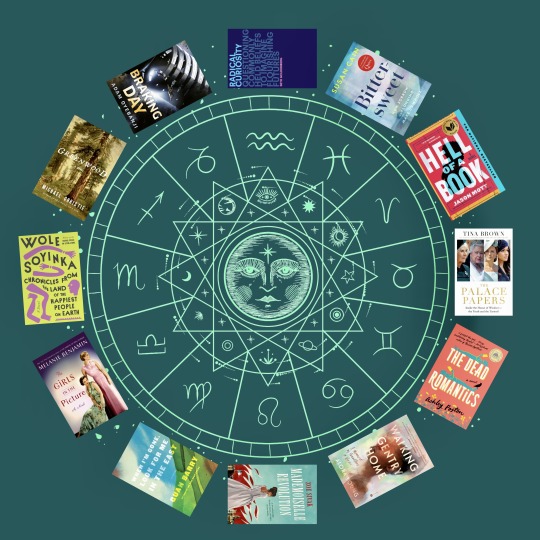
What Your Astrological Sign Needs to Read This Month
[via Penguin Random House]
Aries
Hell of a Book by Jason Mott
Taurus
The Palace Papers by Tina Brown
Gemini
The Dead Romantics by Ashley Poston
Cancer
Walking Gentry Home by Alora Young
Leo
Mademoiselle Revolution by Zoe Sivak
Virgo
When I’m Gone, Look for Me in the East by Quan Barry
Libra
The Girls in the Picture by Melanie Benjamin
Scorpio
Chronicles from the Land of the Happiest People on Earth by Wole Soyinka
Sagittarius
Greenwood by Michael Christie
Capricorn
Braking Day by Adam Oyebanji
Aquarius
Radical Curiosity by Seth Goldenberg
Pisces
Bittersweet by Susan Cain
11 notes
·
View notes
Text
Shoutout to Michael Goldenberg for giving us Competent!Ginny
Or to the extent that was possible with David Yates as the director
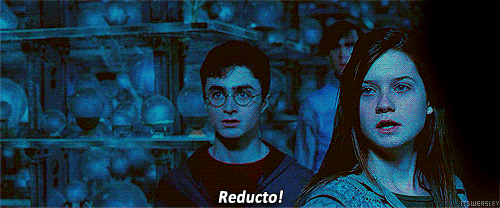
#hinny#harry potter#ginny weasley#harry potter movies#hinny in the movies#New headcanon: David Yates and Steve Kloves conspired against the Hinny community when making the movies
2 notes
·
View notes
Text
"GREEN LANTERN" (2011) Review
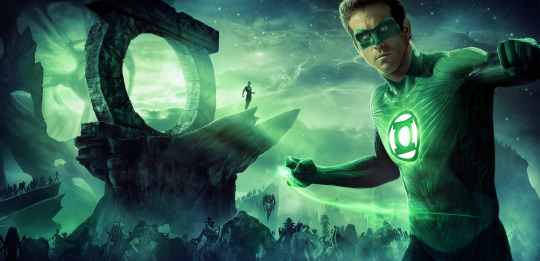
"GREEN LANTERN" (2011) Review
Green seemed to be the dominate colors regarding costumed crime fighters in 2011. The year marked the end of the television series, "SMALLVILLE", which featured Superman's colleague, the Green Arrow. Earlier that year saw the release of "THE GREEN HORNET", starring Seth Rogen and Jay Chou. And during the summer of 2011, Warner Brothers Studios released their adaptation on the DC Comics superhero, the Green Lantern.
Directed by Martin Campbell, "THE GREEN LANTERN" told the story of a hotshot test pilot for Ferris Aircraft named Hal Jordan, who becomes the Green Lantern . . . or one of them. Before Earth was formed, a group of beings called the Guardians of the Universe used the green essence of willpower to create an intergalactic police force called the Green Lantern Corps. One such Green Lantern, Abin Sur defeated a fear-essence being Parallax and imprisoned him in the Lost Sector on the ruined planet Ryut. However, Parallax eventually escapes from his prison, kills four Green Lanterns and destroys two planets. After Parallax mortally wounds Abin Sur, the latter crashes on Earth and commands his Green Lantern ring to find a worthy successor.
The ring chooses Hal Jordan and transports the latter to the crash site, where a dying Abin Sur appoints him a Green Lantern by telling him to take the lantern and speak the oath. Back at home, Hal says the oath of the Green Lanterns, while under trance from the glow of the lantern. He is whisked away to the Green Lantern Corps home planet of Oa, where he meets and trains with Tomar-Re and Kilowog. He encounters Corps leader Sinestro, who is not pleased that a human, considered primitive in compared to other species, has become a Green Lantern. Meanwhile, Senator Robert Hammond summons his son, scientist Hector Hammond, to a secret government facility to perform an autopsy on Abin Sur's body. A piece of Parallax from inside the corpse inserts itself inside Hector, mutating the latter and giving him telepathic and telekinetic abilities . . . at the cost of his sanity. Not only does Hal have to deal with his private insecurities and fears about being a Green Lantern; but also, the uneasy state of his relationship with his boss/ex-girlfriend, Carol Ferris; and most importantly, the increasingly dangerous Hector and Parallax, who is slowly making its way toward Earth.
Unfortunately for "GREEN LANTERN", it flopped at the box office. Because of its $200 million budget, it is considered a major failure and embarrassment for Warner Brothers. The critics tore the film apart before it even reached the movie theaters. And a good number of moviegoers stayed away in droves. In fact, its failure reminded me of what happened to "SPEED RACER" back in 2008, another Warner Brothers release. Pity. Because I enjoyed "GREEN LANTERN" and thought it was a solid, if mediocre adaptation of the famous comic book hero.
Now "GREEN LANTERN" was not the best superhero movie that I have ever seen. The movie's plot struck me as one of those typical superhero origins tale that every fan of this type of movie genre has to . . . well, endure. Some of these origin stories have managed to knock my socks off. I cannot say the same about "GREEN LANTERN". I thought it was tolerable entertainment, yet mediocre. And I do have a major complaint about the screenplay written by Greg Berlanti, Michael Green, Marc Guggenheim and Michael Goldenberg. I thought it had failed to form a stronger connection . . . or relationship between the infected Hector Hammond and Parallax. The two characters only shared one scene and seemed over pretty damn quick.
But I do believe that the critics' enmity was undeserved. "GREEN LANTERN" provided drama, some laughs, action and special effects. The screenwriters did a great job in developing Hal Jordan's character, allowing actor Ryan Reynolds plenty of dramatic meat to show off his acting skills. The screenplay also provided some strongly written supporting characters - especially Carol Ferris, Sinestro, and Hector Hammond, who was provided a strong subplot involving his relationship with his father. And aside from my disappointment over the Hector-Parallax connection, I thought the screenwriters did a solid job in providing a strong connection between Hal's personal demons, his introduction to the Green Lantern Corps and the dangers of Parallax.
The behind-the-scenes production for "GREEN LANTERN" struck me as outstanding. I was very impressed. Felicity Browning led a team that provided first rate makeup for some of the cast. I was especially impressed by their work on Mark Strong, Peter Sarsgaard, and even Ryan Reynolds' eyes, while in his Green Lantern garb. But Grant Major's production designs for the planet of Oa really blew me away. I believe the visual effects supervised by Jim Berney and special effects by John S. Baker probably helped. Not only was I impressed by the designs and effects featured in the Oa sequences, but also the design of Parallax, which freaked me out a bit.
As I had earlier pointed out, the movie's screenwriters did a solid job in their characterization of Hal, making him a complex and interesting character. But it would have never worked without Ryan Reynolds, who not only provided his trademark wit to his performance, but also provided Hal with a great deal of pathos and complexity. Reynolds also created great chemistry with his co-star Blake Lively. I had been very impressed by her performance in the 2010 movie, "THE TOWN". And her performance as Hal's ex-girlfriend, boss and fellow test pilot, Carol Ferris; only proved that my original opinion of her acting talents was not a fluke. She managed to be very impressive.
Ever since I saw him in "JARHEAD" years ago, I have been a fan of Peter Sarsgaard. His portrayal of the insecure senator's son/scientist Hector Hammond made me into an even bigger fan. I think it was a testament to Sarsgaard's acting talent that he allowed Hector to remain a sympathetic character, despite his transformation into a villain from the Parallax infection. And it has been a while since I have seen Mark Strong portray a good guy when I first saw this film.
For me, his portrayal of fellow Green Lantern Sinestro, seemed spot on . . . and a breath of fresh air. Both Angela Bassett and Tim Robbins provided solid support as government scientist Dr. Waller and Hector's father, Senator Robert Hammond. Mind you, I found nothing remarkable about Bassett's role, which is not surprising, thanks to the screenwriters. But it was interesting to see Robbins portray a somewhat smarmy personality, who seemed more interested in his son's ambitions (or lack of) than the latter's well-being.
Look, "GREEN LANTERN" may not be the one of the best comic book hero movies ever made. And it does not strike me as one of the most original, let alone outstanding I have seen of its genre. But I do not believe it deserved the harsh words that many movie critics dumped on it. Thanks to the behind-the-scenes production, Martin Campbell's direction and the cast led by Ryan Reynolds, I thought that "GREEN LANTERN" turned out to be a solid and entertaining film.
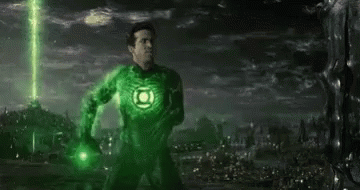
#green lantern#green lantern 2011#hal jordan#ryan reynolds#martin campbell#peter sarsgaard#blake lively#mark strong#d.c. comics#tim robbins#temeura morrison#taika waititi#michael clarke duncan#jay o. sanders#angela bassett#jon tenney#geoffrey rush#Clancy Brown
6 notes
·
View notes